December 26-31, 2023
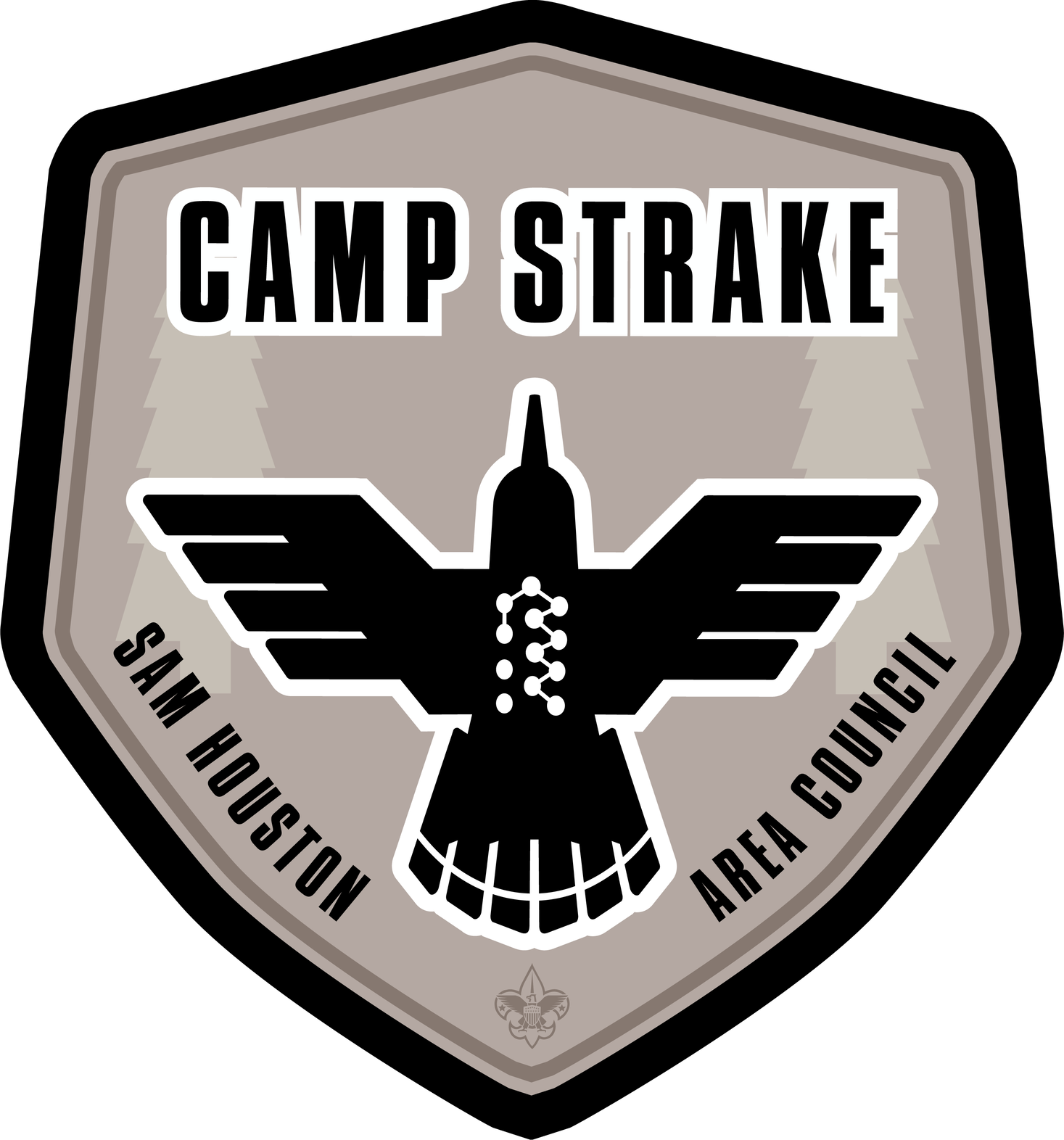




 Winter camp is a wonderful opportunity for troops to camp and Scouts to earn merit badges. Merit badge classes are taught by Scouters with real-life experiences in the field. Winter camp is held at Camp Strake, a first-class and state-of-the-art facility for Scouts and their leaders. Over 80 merit badge classes are offered, including many merit badges not typically offered at summer camp.
Winter camp is a wonderful opportunity for troops to camp and Scouts to earn merit badges. Merit badge classes are taught by Scouters with real-life experiences in the field. Winter camp is held at Camp Strake, a first-class and state-of-the-art facility for Scouts and their leaders. Over 80 merit badge classes are offered, including many merit badges not typically offered at summer camp.
Updates
- Advancement Report. The advancements have been uploaded into Scoutbook. If the advancements don't show in Scoutbook, send the Advancement Report to the Scoutmaster to enter.
Printable View
Winter Camp 2023 - Day 1
Winter Camp 2023 - Day 2
Winter Camp 2023 - Day 3
Winter Camp 2023 - Day 4
Winter Camp 2023 - Day 5 - Week in Review

There are two types of registrations:
- Traditional Troop. Registration is completed by the troop leadership or designee.
- Super Troop. Registration is completed by the troop leadership or designee or parent of individual Scout attending. Learn More
All adult and youth participants must be registered members of the Boy Scouts of America (BSA). Deposits may be transferred to another Scout in the same troop but are non-refundable.
| 2023 Fees |
|
|
Traditional Troop Scout
(late fee begins 12/2) |
|
$375 |
Super Troop Scout
(late fee begins 12/2) |
|
$400 |
| Adult fee |
|
$150 |
| Staff fee (1 per 6 youth) |
|
$75 |
| Fee Schedule |
Due Date |
Fees |
Deposit
(non-refundable) |
Initial registration |
$375 |
Individual deposits
(per person) |
October 31st |
$125 |
| Balance due |
December 1st |
Balance |
| Late fee begins |
December 1st |
|
Adult Leadership
All adults attending:
Traditional Troop Leadership Requirements: Winter camp is an extension of the unit’s program. As such, each troop must provide adequate and appropriate leadership as outlined in the Barriers to Abuse. A minimum of two BSA registered adult leaders 21 years of age or over are required at all Scouting activities, including meetings. There must be a registered female adult leader 21 years of age or over in every unit serving females. A registered female adult leader 21 years of age or over must be present for any activity involving female youth. Notwithstanding the minimum leader requirements, age- and program-appropriate supervision must always be provided. (Source) Troops must have a minimum of two adult leaders and enough leaders to provide adequate and appropriate leadership. All adults must be a BSA-registered leader of the troop with which they are attending. (Source)
Troops Sharing Leadership: All adults in troops that are sharing leadership must be a BSA-registered leader in both troops (Source). Linked boy troops and girl troops cannot share leadership as they will be assigned to different campsites.
Super Troop: Super Troop is a temporary troop made up of Scouts from troops around the council. Super Troop is supervised by a volunteer Scoutmaster along with the parents of the Scouts who are attending Super Troop. There cannot be more than three Scouts in the same troop; if there are more than three Scouts, the troop must provide a second registered adult and register as a traditional troop. Learn More
Staff Volunteers: Winter camp is staffed by volunteers. Troops must have at least one of their adults serve as a staff member for every six Scouts attending winter camp. Adults serving on staff pay half price. All adults attending camp must be registered members of BSA and submit an Adult in Camp Compliance Form (background check). Staff attending with their troop will register with the troop; staff volunteers attending individually can register on their own. Learn more.
About the Adult in Camp Compliance / Background Check
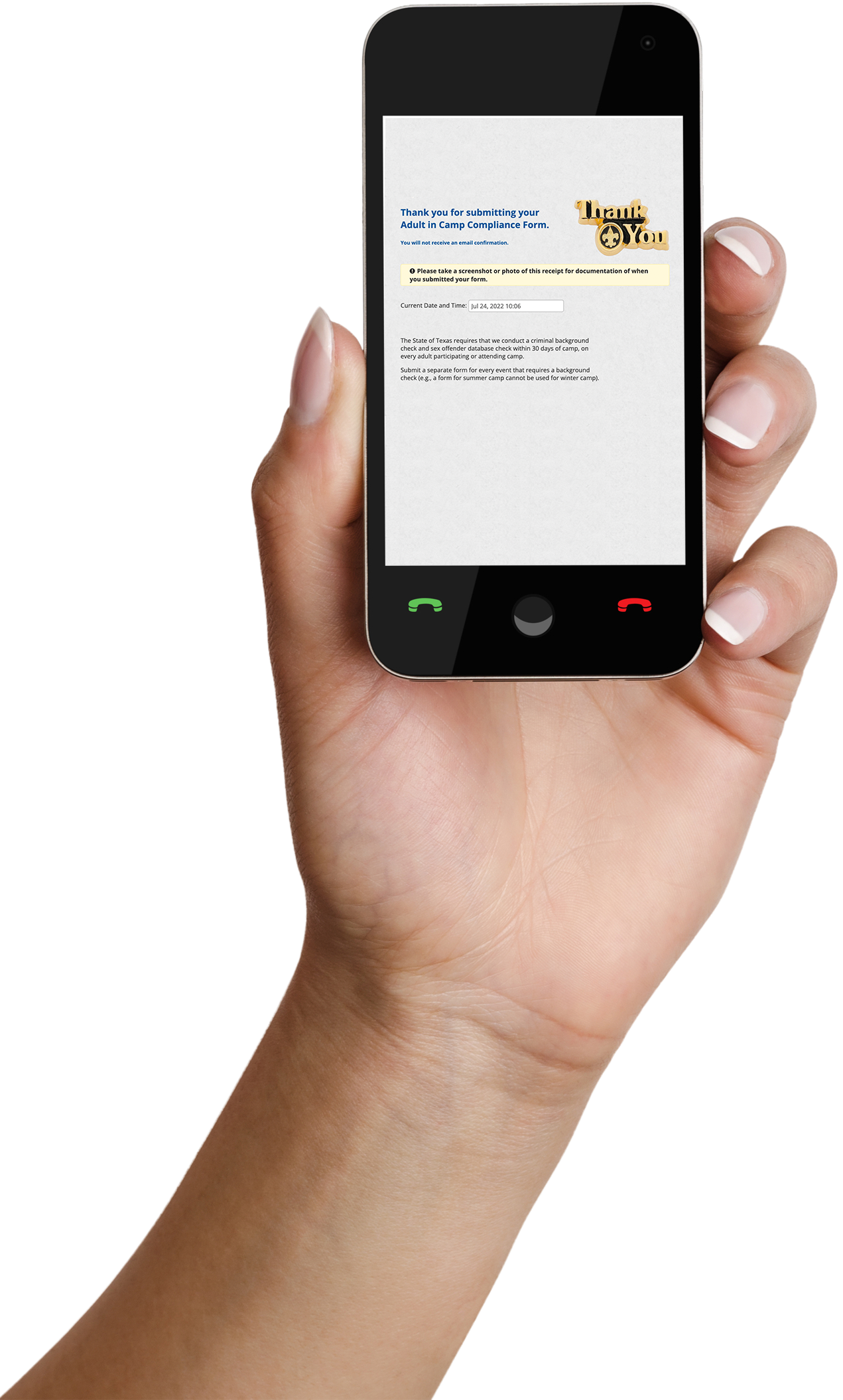
 In order to protect the health and safety of youth attending residential camps in the State of Texas, the Texas legislature has enacted the Texas Youth Camp Safety and Health Act that requires the council to conduct a criminal background check and sex offender database check on every adult who will be at camp. All adults attending camp in any capacity must complete an Adult in Camp Compliance (ACC) form a minimum of two weeks before camp, to allow sufficient time for the background checks to be completed. Completing this form allows the council office staff to complete a criminal background check on each adult in camp (regardless of time spent in camp). Visitors should also complete an ACC form; persons who have not completed an ACC form will have to be escorted by an adult the entire time they are on camp property and will only be permitted to enter camp if someone is available to escort them. Please take a photo or screenshot of the receipt for documentation of when you submitted your form.
In order to protect the health and safety of youth attending residential camps in the State of Texas, the Texas legislature has enacted the Texas Youth Camp Safety and Health Act that requires the council to conduct a criminal background check and sex offender database check on every adult who will be at camp. All adults attending camp in any capacity must complete an Adult in Camp Compliance (ACC) form a minimum of two weeks before camp, to allow sufficient time for the background checks to be completed. Completing this form allows the council office staff to complete a criminal background check on each adult in camp (regardless of time spent in camp). Visitors should also complete an ACC form; persons who have not completed an ACC form will have to be escorted by an adult the entire time they are on camp property and will only be permitted to enter camp if someone is available to escort them. Please take a photo or screenshot of the receipt for documentation of when you submitted your form.
Adult in Camp Compliance Form
(every adult attending must complete)
Meetings
Pre-Camp Unit Leader Informational Meeting | December 4, 2024 | 6:00 - 8:00 pm
At least one leader from each unit, preferably the acting winter camp Scoutmaster, is to attend the informational meeting. Critical information about winter camp will be provided and questions answered. This is not the same meeting as the staff meeting. The meeting will be held both in person at the Cockrell Scout Center (2225 North Loop West, Houston, Texas 77008) and virtually (Zoom). An email will be sent a few days before the meeting to the leader who registered the unit with the online registration link. Early-check-in will also be conducted beginning at 5:00 pm.
Staff Informational Meeting | December 4, 2023 | 6:00 - 8:00 pm
All winter camp staff are to attend the informational meeting. Critical information about winter camp will be provided and questions answered. The meeting will be held online (Zoom).
Staff Meeting Link (for 12/13/23 at 6:00 pm)
Winter Camp Service Day | December 14, 2024 | 8:00 am - 1:00 pm
Winter camp staff are to help set up camp during the staff work weekend held at Camp Strake. Unit leaders are also encouraged to attend. Early-check-in will also be conducted.
Deadline for Outstanding Balances
All outstanding fees must be paid on or before December 1st. Any troops not paying the full balance by that date risk having their registration canceled and all deposits being forfeited.
Camperships
A limited number of camperships are available each year for Scouts with severe financial hardships. Troops should encourage Scouts to earn their own way through unit fundraisers. Campership applications are due by October 15th.
Campership Application
Refund Policy
The council refund policy can be found at shacbsa.org/refund.






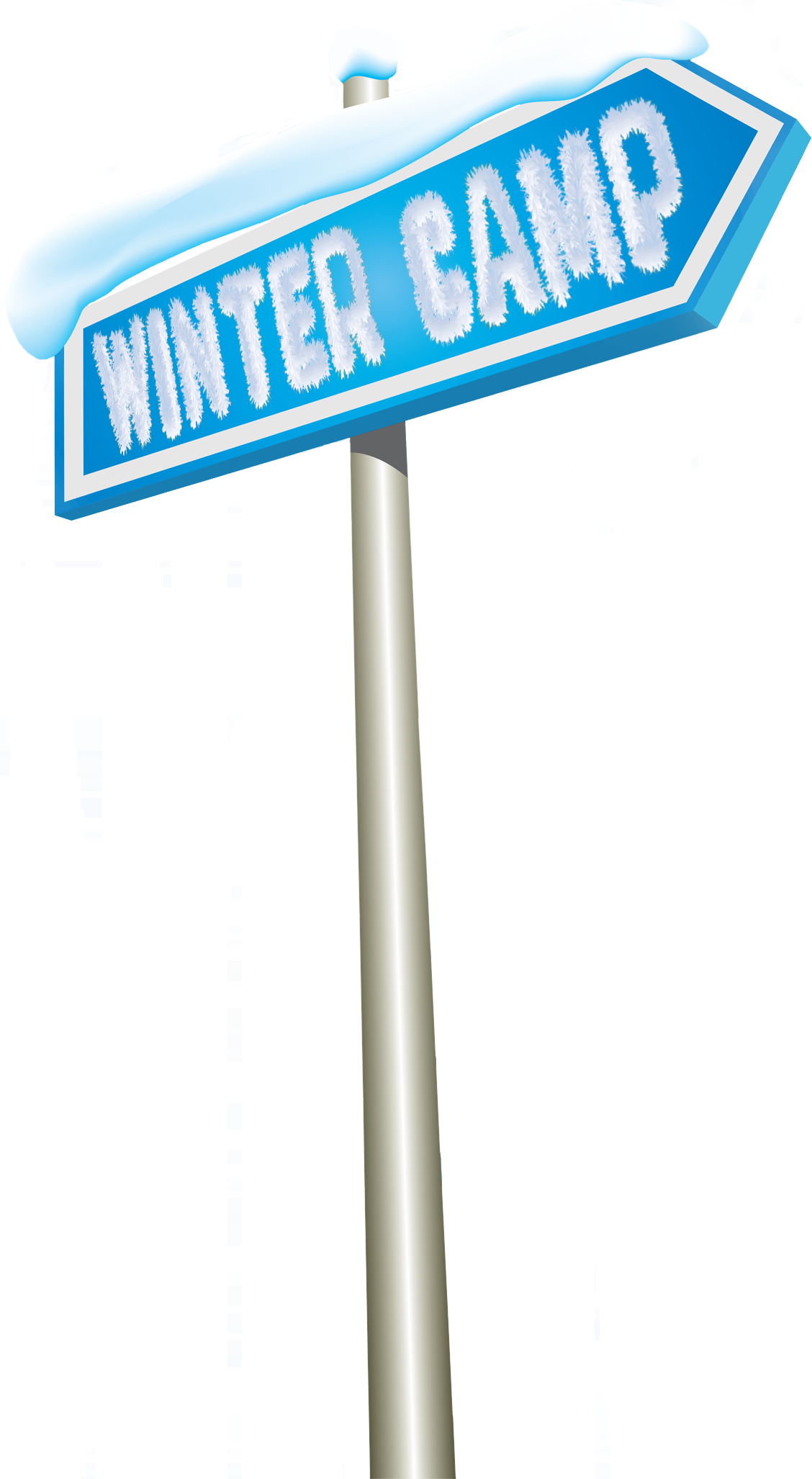


 Updates:
Updates:
One of the many unique aspects of winter camp is that the entire staff is composed of volunteers. Dedicated volunteers take time away from work and their families in order to provide an outstanding program for the hundreds of Scouts who attend camp each year. Over 250 staff members are needed to provide the best possible program for the Scouts. Staff positions include serving as a merit badge counselor, service crew member or camp commissioner. Volunteers are also needed to help in the dining hall, trading post, quartermaster store, business office, and program areas.
In order to be able to provide adequate staff for our camp, all troops attending winter camp need to provide at least one person from that troop to serve as a volunteer staffer for every six Scouts registered for camp, or any portion thereof. For example, if a troop is bringing just four Scouts to camp, they need one person from the troop to serve on staff for winter camp. If a troop is bringing eight Scouts to camp, two people must serve on staff. For troops bringing up to 12 Scouts, this shouldn’t pose a major issue, as each troop should be bringing at least two adults to camp to meet two-deep leadership requirements. Rest assured that any adult leader who agrees to staff at winter camp will not have the ability to supervise and advise their troop adversely affected. The greatest need for most staffers is during times when most Scouts are busy at merit badge classes or enjoying activity periods.
Prospective staff members must be at least 15 years of age (certain staff positions have more stringent age requirements). Interested persons may apply for staff. Applications are approved by the camp director and must be submitted on or before November 15th.
Volunteer Staff (attending with their troop)
Volunteers attending with their troop will register with their troop. Use page 3 of the Merit Badge Selection form (available on the Merit Badge tab) to provide the unit leader with staff preferences to be entered in the registration portal.
Adults teaching merit badge classes must be a registered merit badge counselor and have completed Merit Badge Counselor training online at my.scouting.org. To register as a merit badge counselor, submit a BSA Adult Application (position code 42), Merit Badge Counselor Information Form, and a YPT certificate to your district executive.
Volunteer Staff (attending on their own)
Adult staff (ages 18 or older on December 31st) need to complete steps 1 and 2, and then turn-in the following forms at the winter camp staff meeting or on the first day of camp.
- BSA Annual Health and Medical Record (part A, B1, B2, C) signed by a healthcare provider on or after 12/1/2023.
- Copy of Youth Protection Training (YPT) certificate taken online at my.scouting.org after 12/31/23. To obtain a copy of the YPT certificate, go to My.Scouting.org, click on Menu (upper left corner), click on My Training, click on the printer icon next to YPT status.
- Copy of BSA Hazardous Weather Training certificate taken online after 12/31/23.
Login to my.scouting.org, click on My Dashboard, then Training Center, then Other. Program Safety - opens a new window, click on Expanded Learning - Program Safety, then Program Safety, then Hazardous Weather Training.
- Merit Badge Counselors: Adults teaching merit badge classes must be a registered merit badge counselor and have completed Merit Badge Counselor training online at my.scouting.org. To register as a merit badge counselor, submit a BSA Adult Application (position code 42), Merit Badge Counselor Information Form, and a YPT certificate to your district executive.
Staff registration is a two-step process:
Step 2: The state of Texas requires that the council conduct a criminal background check and sex offender database check on every adult who will be at camp. All adults attending winter camp must submit an Adult in Camp Compliance form.
Youth Staff and CITs
Youth (ages 16-18 on December 31st) can volunteer as camp staff members. Youth under the age of 18 can not drive to camp. (Source)
The Counselor in Training (CIT) is a program for 15-year-olds who are potential future staff members. CITs get a chance to see what staff life is like and work on advancements.
Youth Staff Registration
- CITs (age 15) register with their troop.
- Youth staff ages 16-18 complete a staff application and submit a current BSA Annual Health and Medical Record (part A, B1, B2, C) signed by a healthcare provider to the camp registrar during early check-in date for camp.
Staff Application
Staff Housing
Staff will camp with their troop. Staff not attending with their troop will camp in the staff campsite.
Important Staff Deadlines
| December 13, 2024 |
Background Check Due |
Staff (ages 18+) must submit an Adult in Camp Compliance (ACC) |
| December 13, 2024 |
Class Supply Orders Due |
Submit needs and wish list. |
| December 13, 20234 |
Staff Informational Meeting |
All volunteer staff are to attend the informational meeting. Critical information about winter camp will be provided and questions answered. The meeting will be held online (Zoom) at 7:00 pm. |
| December 14, 2024 |
Service Day |
Winter camp staff are to help set up camp during the staff work weekend held at Camp Strake from 8:00 am to 1:00 pm. Bring your own lunch. |
| December 16, 2024 |
Lesson Plans Due |
Merit badge counselors must submit lesson plans (.doc or .pdf) to TBD. |
| December 20, 2024 |
Printing Requests Due |
Submit printing requests by noon. |
| December 26, 2024 |
Arrival |
Staff not attending can arrive between 8:00 am - 12:00 pm. Staff attending with their troop can arrive with their troop. |
| December 26, 2024 |
Paperwork Due |
• |
BSA Annual Health and Medical Record (part A, B1, B2, C) signed by a healthcare provider on or after 12/1/2023. |
| • |
Copy of Youth Protection Training (YPT) certificate taken online at my.scouting.org. To obtain a copy of the YPT certificate, go to my.scouting.org, click on Menu (upper left corner), click on My Training, click on the printer icon next to YPT status. |
| • |
Copy of BSA Hazardous Weather Training certificate taken online.
Login to my.scouting.org, click on My Dashboard, then Training Center, then Other. Program Safety - opens a new window, click on Expanded Learning - Program Safety, then Program Safety, then Hazardous Weather Training. |
| Merit Badge Counselors: Adults teaching merit badge classes must be a registered merit badge counselor and have completed Merit Badge Counselor training online at my.scouting.org. To register as a merit badge counselor, submit a BSA Adult Application (position code 42), Merit Badge Counselor Information Form, and a YPT certificate to your district executive. |
Staff Arrival
Staff not attending can arrive between 8:00 am - 12:00 pm. Staff attending with their troop can arrive with their troop.
Staff Housing
Staff attending with their unit will camp with their unit. There are limited number of spots for cabins for staff attending independently. Request a cabin in the online staff registration link.
Merit Badge Counselors - Rosters
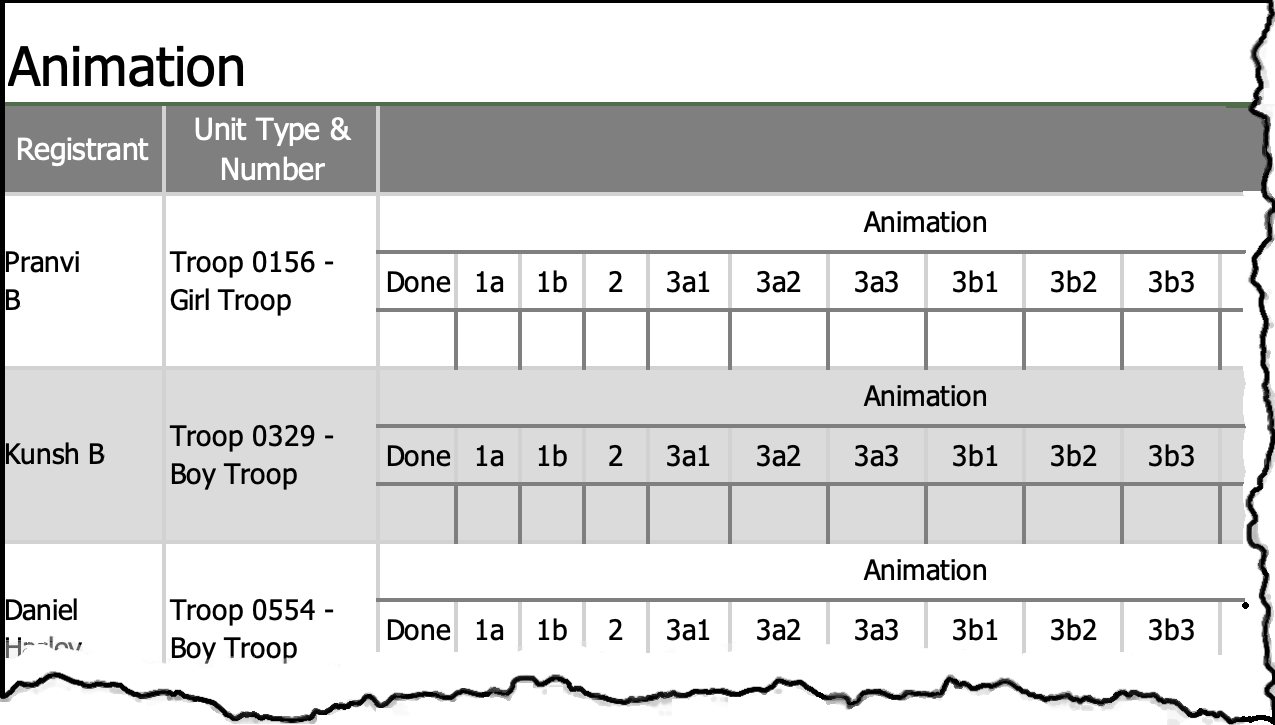

Class Roster
Class Roster
Rosters will be provided to the counselor. Rosters are to be turned in daily to HQ, so a copy can be made and advancements entered into Doubleknot.
- ✓ = advancement is complete
- ✓ Done column = the entire badge is complete (individual advancements do not need to be checked)
Blue cards are not used. A few weeks after camp, all of the completed requirements will be posted directly into Scoutbook. The adult that registered the unit can also log in to Doubleknot and pull a report of advancements completed at camp.
Supplies
If you need any supplies in order to make your merit badge class a success, please compose a need and wish list and submit the request by December 13th so the supplies can be ordered and shipped in time for camp!
Request Supplies
Printing: Printing requests need to be sent to Laquitta.Monroe@scouting.org by December 20th at noon.











 Super Troop is a temporary troop of Scouts from troops around the council. Super Troop allows Scouts to attend camp individually if their unit is not attending.
Super Troop is a temporary troop of Scouts from troops around the council. Super Troop allows Scouts to attend camp individually if their unit is not attending.
Super Troop Registration
The parent/guardian typically registers Scouts for Super Troop. Register as a troop and then select Scout with Super Troop.
There cannot be more than three Scouts in the same troop; if there are more than three Scouts, the troop must provide a second registered adult and register as a traditional troop.
All Super Troop campers must:
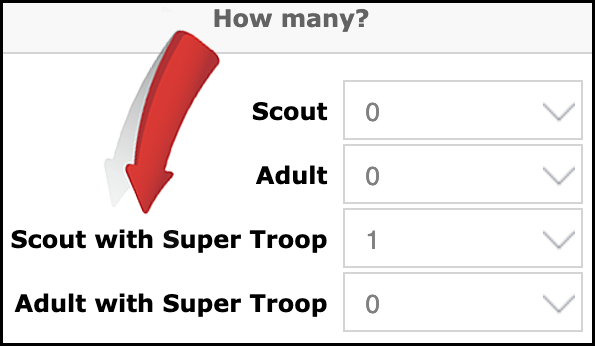


 Have permission from their Scoutmaster to attend. The Scoutmaster must ensure the Scout's readiness to attend winter camp.
Have permission from their Scoutmaster to attend. The Scoutmaster must ensure the Scout's readiness to attend winter camp. - Have the maturity to camp on their own, and be able to abide by the camp rules and follow the schedule independently.
- Have attended several campouts with their troop, and have solid camping skills including being capable if camping in rainy and cold weather.
- Must bring a current BSA Annual Health and Medical Record (parts A, B1, B2, C) signed by a healthcare provider
Super Troop Leadership
Adult supervision will be provided by a volunteer Scoutmaster and parents attending Super Troop with their Scout.
All adults attending:
- Must be a BSA-registered leader with their troop.
- Must submit a criminal background check form
- Must have proof of current Youth Protection Training (taken at my.scouting.org). To print proof of YPT training, login to your my.scouting.org account. In the upper right corner, click on the person icon and then click on, “My Training.” Click on the printer icon, a new browser tab opens containing a pdf file that you can then print to a printer or download to your computer.
- Must bring a current BSA Annual Health and Medical Record (parts A, B1, B2, C) signed by a healthcare provider
- Can participate in adult activities (e.g., Scoutmaster Chuck Wagon Cookoff) and trainings
- Can serve as a volunteer staff member
There is a leader's lounge that you can work in during the day. It has tables, electricity, coffee. There is Wifi at camp. The adults will help the Super Troop Scoutmaster lead the Super Troop youth leaders. The adults will help ensure the Scouts get to their merit badge classes and meals, have the opportunity to participate in evening activities, and STAY HYDRATED throughout the week.
Super Troop Structure
Super Troop will be run as a traditional troop. A senior patrol leader (SPL), and assistant SLP will be elected. Scouts who want to be considered for a leadership position should have a two-minute speech prepared expressing why they are suited for the job. Scouts will be divided into patrols and elect a patrol leader. There will be elections for both the girl troop and boy troop.
Super Troop may be asked to help serve a meal, lead a grace or help with a flag ceremony. Like all troops and camp, Super Troop will be responsible for cleaning bath houses, disposing of trash and maintaining our campsite. Please talk with your Scout about that responsibility of pitching in and helping with these tasks.
Dropoff / Pickup
Dropoff: Scouts can be dropped off at Camp Strake on December 26th between 2:00 - 4:00 pm. Super Troop will be in Campsites 9 and 10. Scouts do not need to wear their uniform to camp. Parents can drive to the campsite and help the Scouts unload their gear. Most parents pick up their Scouts after the campfire.
Pickup: Scouts are to be picked up on December 30th between 5:30 - 10:00 pm. Merit badge classes end at 5:15 pm. The closing campfire is at 8:00 pm. Please ensure your Scout knows when you plan to pick them up so they can have their gear packed and help clean up the campsite before departure. Parents can drive to the campsite to load up the gear. Parents must check-out with the Super Troop Scoutmaster; parents will be given a check-out ticket by the Super Troop Scoutmaster that will need to be given to security staff at the check-out building (by the front gate).
Leaving early: if your Scout needs to leave camp for any reason, it is CRITICAL that you communicate with the Super Troop Scoutmaster.
What to Bring
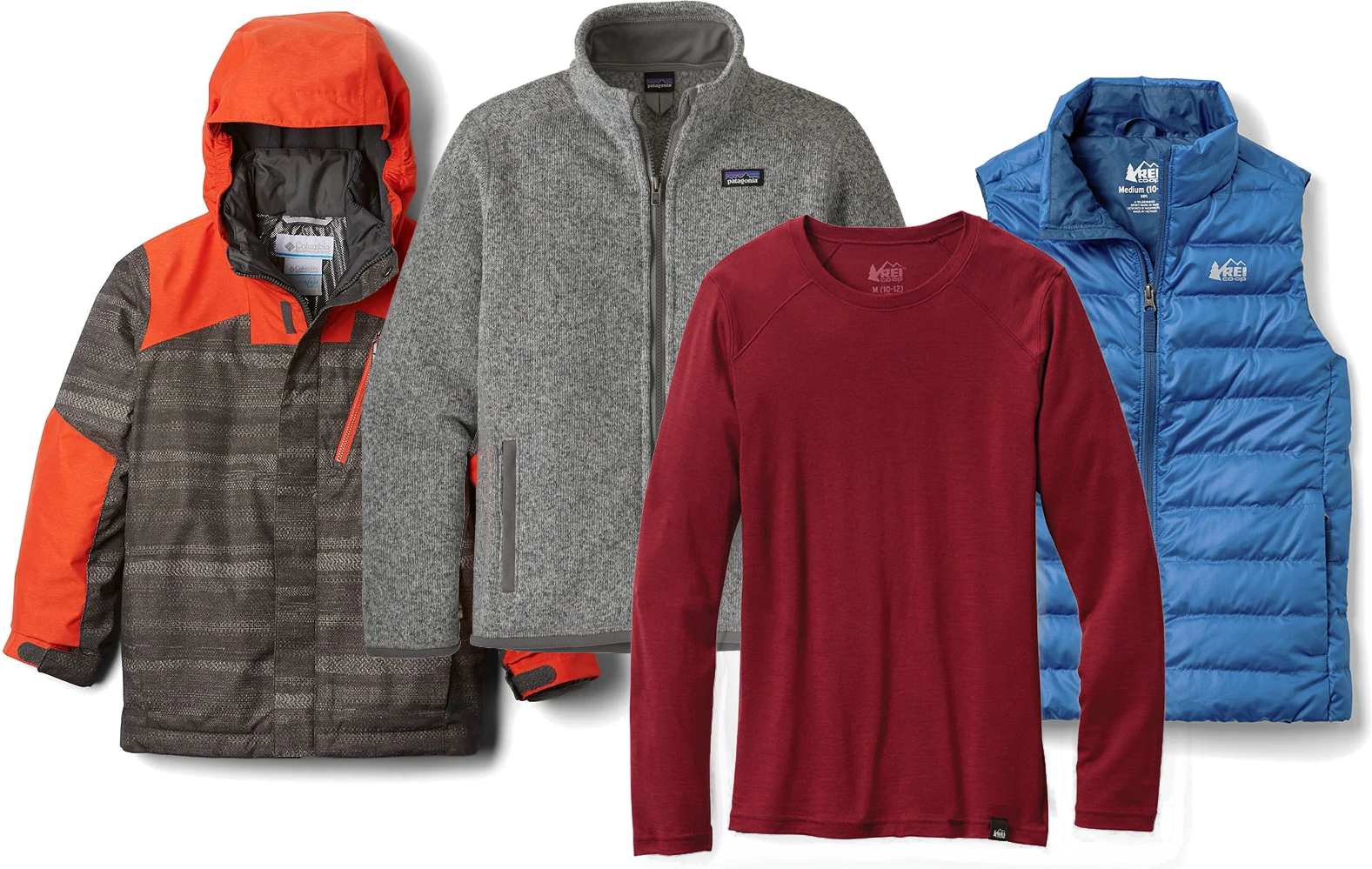


 See the participant packing list and winter camping hints
See the participant packing list and winter camping hints- Mark all items with the Scout's name
- Do not bring valuables
- Don't forget the rain gear and lots of warm clothes. See the winter camping tips in the Participant Guide
-
Medications. Bring any needed medications in their original container and make sure they are listed on the medical form. In addition, bring a completed Routine & Drug Administration Record so the camp staff can document when medications are administered. Medications will be administered by the camp medic. Scouts are allowed to carry an inhaler or epi pen. Learn more about medications in the Participant Guide.
-
Cracker Barrel – Scouts are ALWAYS hungry and we would love to be able to host cracker barrel in the evenings. Please send snacks for 12 (or more). Try to avoid nuts and consider some gluten free items.
-

 Medical Forms - Bring one copy of the BSA Annual Health and Medical Record (Parts A, B1, B2, and C) completely filled out and signed by a healthcare provider.. Unlike troops, Super Troop does not keep a copy in the campsite. Everything medical is handled by the camp medic (see specific instructions below about how to properly fill out the forms). Learn more about medical forms and medications.
Medical Forms - Bring one copy of the BSA Annual Health and Medical Record (Parts A, B1, B2, and C) completely filled out and signed by a healthcare provider.. Unlike troops, Super Troop does not keep a copy in the campsite. Everything medical is handled by the camp medic (see specific instructions below about how to properly fill out the forms). Learn more about medical forms and medications.
-
Special Diets need to be included in the online registration. Learn more about special diets in the Participant Guide. Please let the Super Troop Scoutmaster know about any dietary restrictions so they can ensure the Scout knows how to navigate the dining room.
-
Schedule. Please print a copy of your Scout's merit badge schedule. Go to http://app.doubleknot.com/signon/2509, click on the Registration tab, Reports drop-down, and select Unit Schedule with page breaks. Send an email to camp support if schedule changes are needed. Schedule changes can be made at HQ upon arrival.
Tents
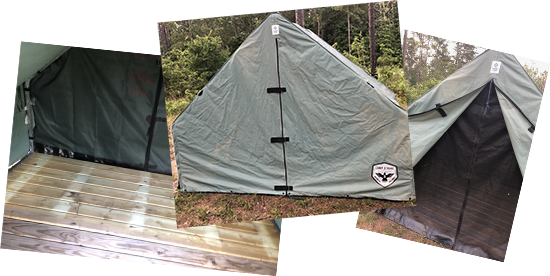


 Super Troop will be camping in the two campsites at Camp Strake with canvas tents set up year-round. Participants will be assigned to tents with two campers (adults and Scouts) per tent following BSA guidelines (e.g., separate tenting arrangements for male and female adults as well as for male and female youth; youth sharing tents must be no more than two years apart in age; youth and adults tent separately; spouses may share tents). Super Troop campers can bring their own tent (with rain fly and stakes). Cots are not provided. Cots can be rented. Pay for the cot at HQ or the trading post and pick it up at the QM.
Super Troop will be camping in the two campsites at Camp Strake with canvas tents set up year-round. Participants will be assigned to tents with two campers (adults and Scouts) per tent following BSA guidelines (e.g., separate tenting arrangements for male and female adults as well as for male and female youth; youth sharing tents must be no more than two years apart in age; youth and adults tent separately; spouses may share tents). Super Troop campers can bring their own tent (with rain fly and stakes). Cots are not provided. Cots can be rented. Pay for the cot at HQ or the trading post and pick it up at the QM.
Homesickness
According to the American Camp Association, most campers report at least some homesick feelings during one day of their camp stay. Common symptoms include mild depression, anxiety, withdrawn behavior, somatic—or physical—complaints, and misbehavior. Sometimes a Scout gets homesick and wants to leave early. Parents should contact the Super Troop Scoutmaster if Scouts contact them and exhibit any signs of homesickness during camp so that the adult leaders can assess the Scouts’ needs and provide positive coping outlets. Some of these strategies might be to get them involved in fun activities, encourage them to talk with other Scouts or a leader about their feelings, remind them of the fun things they have done or will do at camp, and provide special fun tasks each day. Learn more about homesickness.
Merit Badge Completions
A few weeks after camp, advancements completed will be uploaded in Scoutbook and any advancements completed during camp will be checked as completed. The unit leader will then approve the merit badge requirements completed. Learn more about the merit badge process at camp at shac.org/winter-camp/program.
Questions
For questions, contact us using the support email. About a week before camp, the contact email of the Super Troop Scoutmaster will be emailed to campers.




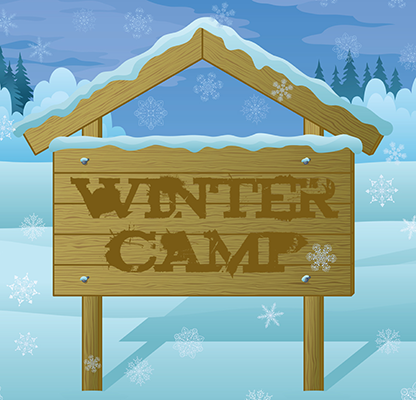







Printable View
Scouts are expected to live the principles of the Scout Oath and Law.
Participant Packing List
Medical Form
|
Clothing
- Field uniform (Scout uniform) and belt
- Activity uniform (Scout t-shirts) (5)
- Clothing appropriate for weather
- Long sleeve shirts (2 to 4)
- Socks (4 or 5 pair)
- Pants (2 to 4 pair)
- Shoes (closed-toe) or hiking boots
- Cap or hat
- Underwear (5)
- Pajamas or sleeping clothes (wool, polypropylene or polyester, never cotton!),
hat and clean socks for sleeping
- Rain gear (pants and jacket)
- Winter coat
- Work gloves
- Dirty clothes bag
Camping Gear
- Tent (there are no tents or platforms at camp)
- Sleeping bag (1 or 2), blankets, sheet
- Pillow
- Cot or pad or air mattress or rent a cot for $10
- Personal first aid kit
- Flashlight and extra batteries
- Water bottle - marked with name and troop #
- Water bottle clip to attach water bottle to belt loop or backpack
- Sports drink powder packs for water bottles (not energy drinks)
- Backpack
- Portable chair or camp stool
- Pocket knife and Totin' Chip
- Lockable storage container, recommended to keep clothes dry, available at big box stores)
Arctic Adventure (ages 14+)
Scouts enrolled in ATV bring:
- several long sleeve shirts and long pants (recommend bringing 1 set/day)
- ankle-high boots
- other items recommended: riding gloves, head bandana, and a bag to carry muddy clothes.
- ATV Consent Form (signed by a parent/guardian)
- documentation of completion of part 1 of the ATV Safety Institute E-Course online before camp. There is no charge to take the 1-2.5 hour course (direct link).
- (learn more about the ATV program in the ATV section of the program tab)
|
Personal Items
- Towels and washcloth
- Soap and shampoo
- Toothbrush and toothpaste
- Comb, brush, mirror
- Flashlight and extra batteries
- Personal medications: prescriptions (listed on medical form) and over-the-counter, in original containers
- Insect repellent (non-aerosol)
Program Items
Optional
- Thermal underwear (pants and shirt), polypropylene or polyester, not cotton
- Spending money for the trading post (cash, debit, credit)
- Nontoxic, non-combustible, environmentally friendly hand warmers
- Backup phone battery, rechargeable, fully charged
- Mosquito netting
- Book of Faith
- Camera
- Items for branding
- Theme-based costume for theme night (see activity section under program tab)
- Frisbee (for Frisbee golf course), football, soccer ball, kickball
- Bikes and helmet# (see requirements below)
- Fishing pole (bass, sunfish, bluegill) and bait (worms, corn, jigs, spinnerbaits, crankbaits, topwater lures); hooks must be barbless; catch and release only
Adults
|
*Mark all items with name and troop number. Electricity is limited.
#Bikes (non-motorized) are allowed on all paved roads to access the campsites and program areas and on the marked mountain bike trail by the bike barn. There are bike racks near the climbing tower, shooting sports area, Grand Pavilion, and campsites 1 and 20. All other trails, including sidewalks and grassy areas are off-limits. Helmets, proper safety protocols, and procedures are required at all times while riding bicycles. Learn more about BSA Bike Safety.
Don’t Bring: Valuables, electronics (e.g., iPad), fireworks, sheath or hunting knives, pets, hammocks, personal firearms and ammunition, jewelry, personal bows and arrows, fuel-burning hand warmers, generator, amplifier
|
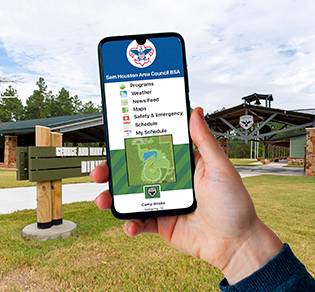
 Camp App
Camp App
We are thrilled to introduce our brand-new camp app, which will serve as a vital communication tool for all camp attendees, offering convenient access to essential resources such as the camp map, schedule, program updates, emergency announcements, and much more. You can find it by searching "Sam Houston Area Council" on both Apple and Android platforms.
Personal Possessions
Camp is an outdoor experience. A Scout misses a full outdoor experience by electronic devices. Personal items such as electronics should not be brought to camp. In all cases, personal valuables (watches, wallets, money) should not be in the open at camp. It is virtually impossible to provide security for these items. It is recommended that each unit bring a lockable storage container to secure valuables while an adult is not in the campsite. All items must be permanently marked with Scout's name and troop number. No adult or Scout should ever leave any electronic device unattended while charging anywhere at camp.
Winter Camping Tips



 Participants are expected to come to camp prepared for variable weather. Although temperatures average between 40 to 60 degrees during winter camp, temperatures have been known to dip as low as 19 degrees and rise as high as 80 degrees.
Participants are expected to come to camp prepared for variable weather. Although temperatures average between 40 to 60 degrees during winter camp, temperatures have been known to dip as low as 19 degrees and rise as high as 80 degrees.
Sources: Winter camping tips and tricks to help you enjoy the fourth season, Eight essentials for staying warm while cold-weather camping, Outdoor Smarts: How to Keep Warm in Camping's Fourth Season; How to Stay Warm With the Right Winter Gear
Dressing for the cold. When dressing for cold weather, focus on a layering system including the three Ws: wicking, warmth and wind. Your base layer should be wicking (like an athletic shirt), an insulating layer should be warming (like fleece or wool) and an exterior layer should block the wind. Use clothing you have, focusing on the right combination of fabrics.
• Wicking Layer or Base. Also commonly known as long underwear, the base layer is worn closest to your skin. Its main job is to wick away sweat and moisture so your skin stays dry. Wear it relatively tight to the skin and use only wool or synthetic base layers. Never use cotton because it will not keep you warm once it’s wet, whether from sweat or precipitation. These base layers come in various weights, from heavy for frigid conditions to lightweight for warmer temps and activities that cause a lot of sweating, such as strenuous hiking and cross-country skiing. It’s a good idea to have one extra pair of base layers to change into every night at camp.
• Warmth Layer or Insulation. The insulation layer is worn atop the base layer and is designed to provide the majority of your insulation. It should be made of fleece, wool, down or synthetic insulation and can be a pullover, zip-up jacket or vest, depending on how much insulation you need.
• Windproofing Layer or Shell. The outermost layer, the shell jacket and pants protect you from wind and wet conditions. There are two types of shells: the hard shell is a lightweight layer that’s windproof and waterproof, capable of handling heavy rain and very wet conditions; a softshell is made of a more flexible, soft-faced material that’s windproof yet highly breathable, and water-resistant enough to protect you against everything except a heavy downpour.
Mittens. Mittens are warmer than gloves. If insulated mittens get wet, they stay that way. Wool mitts worn inside leather or nylon shells are removable for faster drying. Wool gloves are needed for dexterity when cooking.
Sleeping. Be sure to change into dry clothes for sleeping — moisture retained in field clothes will cause chilling. For overnight warmth, wear wool, polypropylene, or polyester (never cotton!) long johns, socks, and a balaclava to bed. Place a scarf across your neck to seal drafts.
Sleeping bags. Two sleeping bags — one placed inside the other — should provide enough warmth down to about zero degrees. If you don’t have a closed-cell foam pad to use as a sleeping mat, try half-inch-thick foam carpet padding.
Ground cloth. In warmer months, a plastic ground cloth should be used inside your tent to stay dry. However, in winter, use the ground cloth beneath your tent to keep it from freezing to the ground.
Toes cold? Put on a hat. Your body loses up to half of its total heat in 40-degree temperatures. So, when it’s below freezing and your head is uncovered, you could be radiating more than three-fourths of your overall body heat from your head.
Baggy clothes are back in style at least in the freezing-cold wilderness. Your body heats itself most efficiently when it’s enveloped in a layer of warm air. If your clothes are too tight, you’re strangling the cold right out of your body. Dressing in loose layers helps aid this convection layer of air. Tight clothes or too-tight boots can also restrict blood flow.
The three W’s. Every cold-weather camper needs to dress for the occasion. You’ll need a wicking layer (long underwear), a “warm” layer (fleece), and a “wind” layer (waterproof shell).
Stay hydrated. In winter, you may not be aware of how much you’re sweating. A gulp of ice-cold water is hardly appetizing, but it is important to keep drinking. Hot drinks and soup are great ways to replenish liquids, electrolytes, and heat. Keep extra tea bags on hand, as well as bouillon cubes, and hand out hot drinks liberally, especially at the end of the day when energy is low.
Personal Possessions
Camp is an outdoor experience. A Scout is cheated out of a full outdoor experience by electronic devices. Personal items such as electronic games, iPads should not be brought to camp. In all cases, personal valuables (watches, wallets, money) should not be in the open at camp. In all cases, personal valuables (watches, wallets, money) should not be in the open at camp. It is virtually impossible to provide security for these items. It is recommended that each unit bring a lockable storage container to secure valuables, while an adult is not in the campsite. All items are to be permanently marked with Scout's name and troop number. Scouts should not leave any electronic device unattended while charging anywhere at camp.
Camp Program
Learn more about the exciting program and merit badges being offered at winter camp.
Camp Program Merit Badge Schedule
Meals

 The air-conditioned dining hall seats 450 people. All meals are served in the dining hall. The dining hall has commercial gas stoves and ovens, food preparation areas, plenty of utensils and cooling supplies, a dry goods storage area, a dishwashing area, two walk-in refrigerators, three freezers, and much more. High-quality and nutritious meals will be provided on-site by a professional custom food service company. All menus have been reviewed by a certified dietician and are designed to provide active and healthy youth and adults with the nutrition and calorie intake needed for camping.
The air-conditioned dining hall seats 450 people. All meals are served in the dining hall. The dining hall has commercial gas stoves and ovens, food preparation areas, plenty of utensils and cooling supplies, a dry goods storage area, a dishwashing area, two walk-in refrigerators, three freezers, and much more. High-quality and nutritious meals will be provided on-site by a professional custom food service company. All menus have been reviewed by a certified dietician and are designed to provide active and healthy youth and adults with the nutrition and calorie intake needed for camping.
There is a salad bar and pasta bar at every meal. Seconds are available after everyone has been served, so there is plenty of food for everyone. Snacks are available for purchase in the Trading Post.
Special Dietary Needs
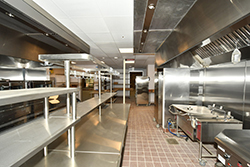
 Allergies and special diets are common concerns. If a Scout requires a special diet, the unit leader must enter the information in the online registration system at least two weeks prior to arrival. The camp's food service providers are very experienced with accommodating most diets; however, not all diets can be accommodated. The unit leader will provide a parent and/or adult participant's email and phone number in the online registration system whenever a special diet is requested; the food service provider might contact the adult participant or a Scout's parent/guardian to discuss unique special requests.
Allergies and special diets are common concerns. If a Scout requires a special diet, the unit leader must enter the information in the online registration system at least two weeks prior to arrival. The camp's food service providers are very experienced with accommodating most diets; however, not all diets can be accommodated. The unit leader will provide a parent and/or adult participant's email and phone number in the online registration system whenever a special diet is requested; the food service provider might contact the adult participant or a Scout's parent/guardian to discuss unique special requests.
The following diets can be accommodated: vegetarian, kosher, halal, no pork, no beef, gluten-free, nut-free, soy-free, dairy-free, and lactose intolerant. Shellfish is not served at camp. The only peanut product served in the dining hall are peanut butter in the extra food bar. Not all diets can be accommodated; if the camper has a unique request, the details should be entered into the online registration system along with an email and the food service provider will let them know if the request cannot be accommodated.
- While at camp, participants could participant in many dining styles such as family-style dining, cafeteria-style dining, and/or self-serve bars.
- It is the expectation that all campers have the necessary knowledge of their diet and can manage their food choices.
- Camp staff cannot guarantee an allergen-free environment. Careful consideration needs to be taken for campers with severe allergies, particularly those susceptible to airborne transmission.
- If a camper has a severe allergy or dietary restriction, contact the camp directors to discuss if the camp staff is properly equipped to manage needs.
- While the staff works to meet all dietary requirements, food is prepared in an area with milk, eggs, peanut, tree nut, wheat, soy, fish, and cross-contamination may occur.
- Upon arrival at camp and prior to their first meal eaten, it is the camper's responsibility to identify themselves to the kitchen staff; then cooperate in helping the camp staff meet their need(s).
Depending on the need, it may be necessary for campers with special dietary requirements to bring food items to supplement items available at camp. Participants with special diets can request access to refrigerators, freezers, and microwaves to heat food, but actual cooking must be done at the campsite.
BSA Annual Health and Medical Record



 Because winter camp is longer than 72 hours, every participant must have Parts A, B1, B2, and C, even if they will be at camp for less than 72 hours. The form must be completed in its entirety and must contain all applicable signatures. All entries must be completed in ink. Changes are allowed but should be dated and initialed by the person changing the form. Forms can be downloaded at www.scouting.org/scoutsource/healthandsafety/ahmr.aspx. The form must be completely filled out; part C must be signed by a healthcare provider.
Because winter camp is longer than 72 hours, every participant must have Parts A, B1, B2, and C, even if they will be at camp for less than 72 hours. The form must be completed in its entirety and must contain all applicable signatures. All entries must be completed in ink. Changes are allowed but should be dated and initialed by the person changing the form. Forms can be downloaded at www.scouting.org/scoutsource/healthandsafety/ahmr.aspx. The form must be completely filled out; part C must be signed by a healthcare provider.
BSA Health and Medical Record
Forms must be completed annually. An AHMR is valid through the end of the 12th month from the date it was administered by the medical provider. For example, a physical administered on December 1, 2023, would be valid until December 31, 2024. There is no provision for the administration of a physical examination to be done at camp. If a Scout does not have an Annual Health and Medical Record, they will either have to secure one from an area doctor at their expense or return home.
Please carefully review all BSA Annual Health and Medical Records prior to check-in. Common errors made on the BSA Annual Health and Medical Record:
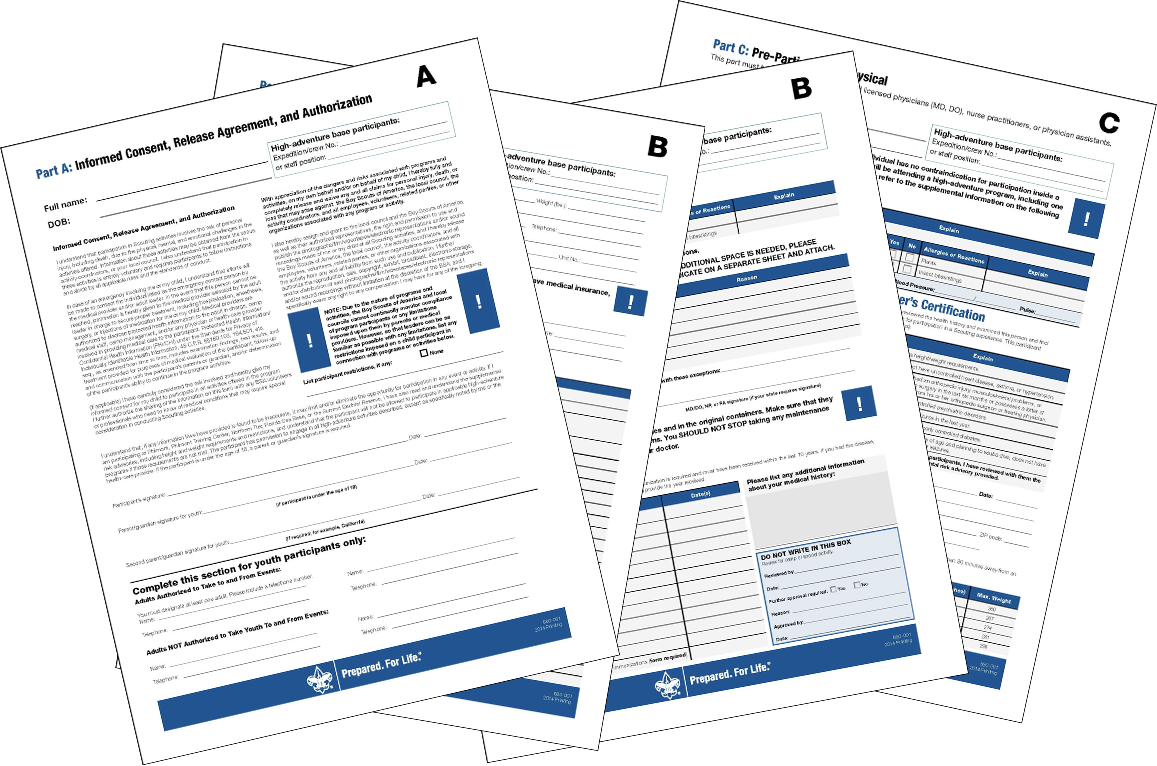


 Part A - Consent to Treat. Ensure the form is signed and dated by adult participants or the parent of Scouts under age 18. All signatures must be dated on or after 12/1/2023. Digital signatures must contain the proper digital information; cutting and pasting is not allowed. Authorization for a Scout to leave camp with an adult is at the bottom of the page.
Part A - Consent to Treat. Ensure the form is signed and dated by adult participants or the parent of Scouts under age 18. All signatures must be dated on or after 12/1/2023. Digital signatures must contain the proper digital information; cutting and pasting is not allowed. Authorization for a Scout to leave camp with an adult is at the bottom of the page.- Part B1 - Contact Information and Health History. Emergency contact information should be complete and include phone numbers. The health history should be complete with all lines marked either Yes or No. In order to be able to treat youth in camp for more than immediate life-threatening conditions, our medical staff must have signed consent of a parent or guardian of a youth as contained in Part B. Also, adults who cannot otherwise consent due to incapacity must have signed this page in order for our medical staff to provide more than stabilization treatment.
- Part B2 - Allergies, Medications, and Immunizations. List allergies to food, plants, medications, and insects on the form. If an EpiPen needs to be carried by the Scout or Scouter, it MUST be noted on the form. Any medication taken regularly should be listed. If the parent/adult guardian authorizes Over-the-Counter medication (OTC) to be given, the line must be signed, dated, and checked “Yes”.Complete the form rather than attaching an immunization record. Immunizations – BSA currently requires only the Tetanus immunization, and it (or updated boosters) must have been received within the last 10 years. A check of “Yes” and the latest date must be listed. The Texas Department of Health will not accept “Up-to-Date,” “Current,” or “On-file.” Please do not attach shot records to the AHMR.
- Part B2 - Non-prescription medications. Ensure the non-prescription medication question is checked (Yes or No) on Part B2 of the medical record whether non-prescription medications (e.g., acetaminophen, antibiotic ointment, antacids, antihistamine, hydrocortisone cream) can be administered at camp. If the option to allow non-prescription medication is not checked, then it will be necessary for the unit leader of camp medical officer to attempt to contact the parent or guardian for permission to administer such medications. If they are unable to reach a parent/guardian, then the Scout will need further medical evaluation by the designated camp physician or hospital facility.
- Part C - Pre-participation Physical. All participants must complete a pre-participation physical on or after December 1, 2023. The form must be signed/dated by the health professional. Ensure that the healthcare provider completing Part C dates the form when signing.
- Using a current form. Download the latest form (revised 2019) at www.scouting.org/scoutsource/HealthandSafety/ahmr.aspx.
- Do not provide original forms. While the camp staff will try to return forms, it is best to provide copies. The forms are destroyed after camp.



 Digital signatures (or e-signatures) must be backed by an Adobe digital certificate. Approved digital signatures will have a certificate-based signature box (similar to the example on the right) on the signature line. Altered forms with signatures in a script font are not allowed.
Digital signatures (or e-signatures) must be backed by an Adobe digital certificate. Approved digital signatures will have a certificate-based signature box (similar to the example on the right) on the signature line. Altered forms with signatures in a script font are not allowed.- FAQs about the Annual Health and Medical Record
- Read about important medical risk factors
Prescription and Non-Prescription Medications
All medication is the responsibility of either the individual taking the medication or that individual’s parent or guardian. A leader, after obtaining all the necessary information and permission, can agree to accept the responsibility of making sure a youth takes the necessary medication at the appropriate time, but the BSA does not mandate or necessarily encourage the leader to do so. (Source)
- Scouts and adults who require medication must have all medications listed on the BSA Annual Health and Medical Record. Be sure to check (Yes or No) on Part B2 of the BSA Annual Health and Medical Record whether non-prescription medications (e.g., acetaminophen, antibiotic ointment, antacids, antihistamine, hydrocortisone cream) can be administered at camp.
- Bring enough of the medication in sufficient quantities in the original container to last throughout camp, but only send the amount of medication needed at camp. If requested, most pharmacists will provide a second labeled container for medications so only the needed prescription can be sent to camp and the remainder can be kept at home in a labeled container.
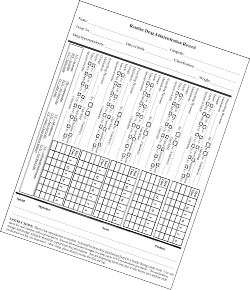


 Keep the medications in the original prescription bottle/container.
Keep the medications in the original prescription bottle/container. - Place all medications in a zip-lock-type plastic bag with the Scout’s name on it.
- Include a filled-out copy of the BSA’s Routine Drug Administration Record.
- Make sure the prescriptions are not expired, including inhalers and EpiPens.
- Make sure that youth with asthma inhalers or epinephrine auto-injectors have what they need when they need it. They should know how to use the medicines, and they should report the use to an adult.
- All information on administration, including any specialized equipment or medication (e.g., insulin injections, insulin pumps, and emergency medications) should be provided to unit leaders.
- Campers should not stop taking any maintenance medications unless instructed to do so by their doctor.
- If a medication needs to be refrigerated, contact the camp health officer.
- Emergency medications that may be needed for an emergency or on an urgent basis may be carried by the youth participant. A buddy or a responsible adult should be sure the youth has the emergency medication. • The youth participant must notify the adult leader immediately upon self-administering the emergency medication. • In many cases, an evaluation or further treatment by a healthcare provider may be needed after the use of some emergency medications, e.g., epinephrine, even if the youth member feels OK. It may also be necessary to obtain an additional supply if no additional doses are available. • Planning should address how the emergency medication will be administered and include how to develop the adult leader’s comfort in assisting the youth if necessary. • The parent or guardian should be notified of the use of emergency medication.
Unit leaders will collect, store, dispense, and document/record medications for their Scouts. Unit leaders are to store the medications in a locked container kept in a locked vehicle. Units will receive a medication record sheet upon check-in on the first day of camp from the camp medic.
Routine Drug Administration Record Medication Use in Scouting Safe Use of Medication in Scouting
Buddy System
All Scouts should adhere to the buddy system throughout the camp. No Scout should ever be found wandering through camp alone. This can be difficult if the Scout doesn't have scheduled classes with fellow members of their troop. The troop leadership is encouraged to attempt to pair Scouts in classes as much as possible. If this is not feasible, the Scout should walk with other Scouts in the class to the location of the merit badge class. Due to the number of Scouts and the short amount of time between classes, this should be a relatively simple exercise.
Youth Leaving and Returning
Parents are encouraged to allow Scouts to remain at camp all week. This reduces unnecessary traffic in and out of camp and allows youth to have the complete camp experience with their troop. Youth will only be allowed to check out from camp prior to final checkout by an adult authorized on Part B of the Scout’s BSA Annual Health and Medical Record. Please ensure that parents in your troop have included all authorized adults on this form. Without this authorization on the form, only an adult from the Scout’s troop registered for camp or the parent signing the form will be allowed to remove the child from camp prior to the final checkout.
No one, including a Scout leader or parent, will be allowed to leave camp with a person under the age of 18 without having checked out at the winter camp office and receiving a ticket which will be given to a security team member before leaving camp.
During checkout, on the last day of camp, adult leaders will receive exit tickets for all youth in their troop from their camp commissioner once they have successfully checked out.
Nonparticipants in Camp
For liability reasons, unregistered youth, younger siblings or friends, that are not registered as a member of the Boy Scouts of America in a troop, crew, or ship are not allowed to participate in camp programs.
Lost and Found
If any lost items are found, they should be turned in at the winter camp office as soon as is reasonably possible. Likewise, if anyone from your troop has lost an item while at winter camp, check with the winter camp office to determine if it has been returned there.
Lost items will be kept in the winter camp office through the end of winter camp. After winter camp, the camp director will dispose of the items left at camp (e.g., donated to a non-profit organization, returned to the council office, thrown in the trash). The council, nor its staff, shall be held responsible for any lost items.
Do not bring valuables to camp. To assist in returning items to their rightful owner, please ensure that all items brought to camp have the owner’s name and troop number marked on them.
Trading Post
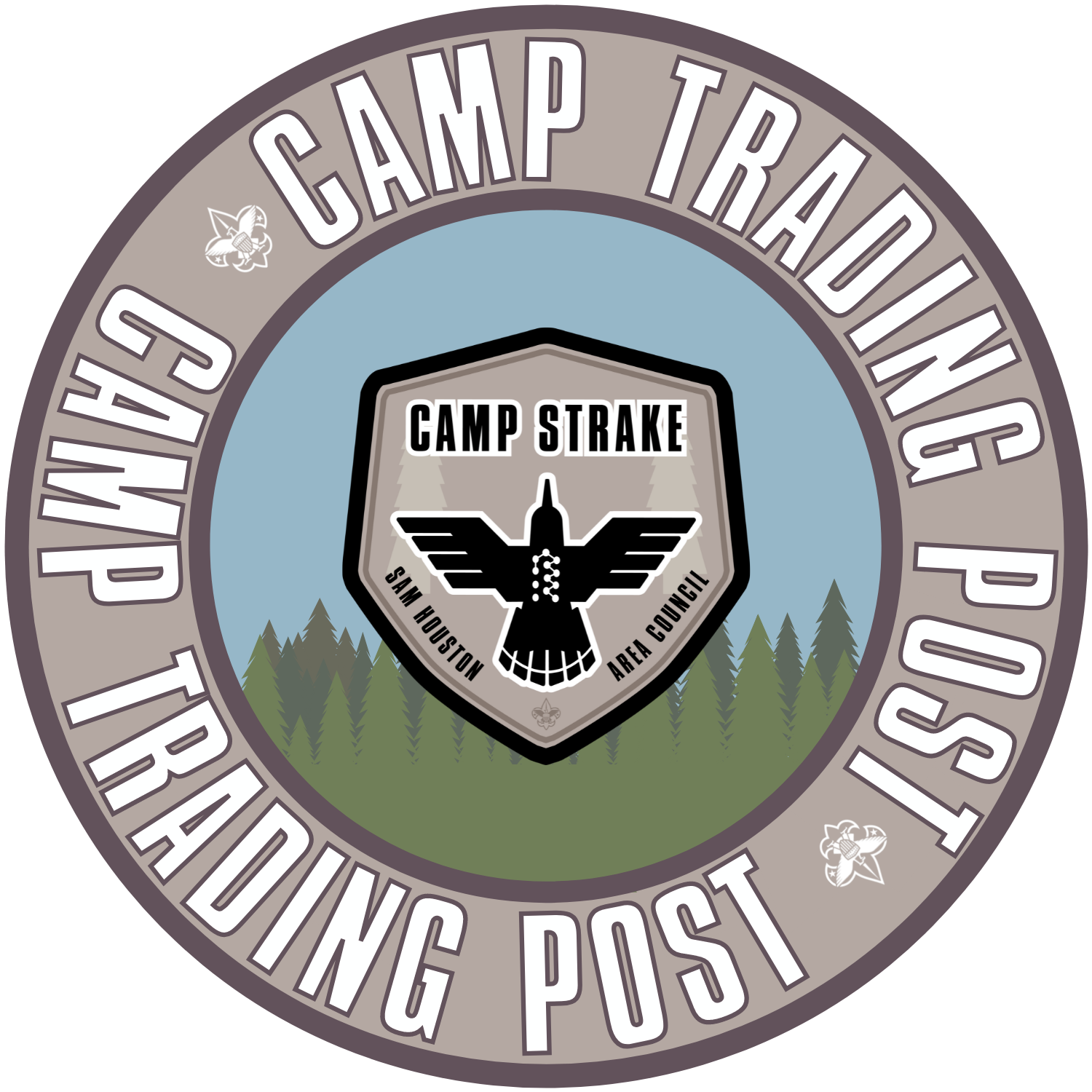


 The trading post is located in the camp headquarters building and is stocked with merit badge pamphlets, t-shirts, Scouting literature, handicraft supplies, camp patches, mugs, camping equipment, cold drinks, ice cream, drinks and candy. The trading posts accept cash, and credit cards. Scouts who want to purchase a pocket knife must show their Totin' Chip. Hours for the trading post can be found on the doors to the trading post. There are no pre-orders of camp t-shirts and hats; these items will be sold onsite.
The trading post is located in the camp headquarters building and is stocked with merit badge pamphlets, t-shirts, Scouting literature, handicraft supplies, camp patches, mugs, camping equipment, cold drinks, ice cream, drinks and candy. The trading posts accept cash, and credit cards. Scouts who want to purchase a pocket knife must show their Totin' Chip. Hours for the trading post can be found on the doors to the trading post. There are no pre-orders of camp t-shirts and hats; these items will be sold onsite.
Illegal Substances
Smoking or vaping by youth at any Scouting event will not be tolerated. If a youth is caught smoking at winter camp, the youth’s parents or guardians will be contacted by phone and shall be required to pick the youth up from camp immediately. The consumption, possession or use of alcohol or illegal drugs or controlled substances at camp is not permitted. All local, state, and federal laws will be followed when a violation involving the above substances is reported. Violators will be asked to leave the camp immediately.
Questions
Parents of campers should contact their troop leaders with questions about winter camp. Many of the adult leaders attending winter camp are quite experienced and can answer questions.








Campsites
Google Map




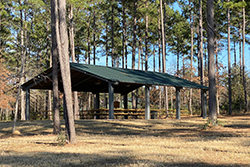
 Campsites are nestled in shaded areas throughout the camp. Each campsite has a large covered pavilion with picnic tables, 2 electrical plugs, a bulletin board, a fire pit, and a water spigot. There are no washers and dryers at camp (laundromats are located in Livingston, TX).
Campsites are nestled in shaded areas throughout the camp. Each campsite has a large covered pavilion with picnic tables, 2 electrical plugs, a bulletin board, a fire pit, and a water spigot. There are no washers and dryers at camp (laundromats are located in Livingston, TX).
All campsites will contain single-gender units. Brother and sister units will not be allowed to share a campsite; each unit must have a minimum of two-deep leadership and enough leaders to provide adequate and appropriate leadership.
Campsite assignments will be provided to units when they check in on December 26th.
The camp commissioner will campsite assignments based on the troop's size; multiple troops will share a campsite. Requests to camp close to another unit (e.g., so brother and sister units can share equipment) and requests to share a campsite with another unit can be made during registration, but there are no guarantees that the request can be accommodated. Generators of any type are not permitted. The pavilions located in each campsite have electricity.
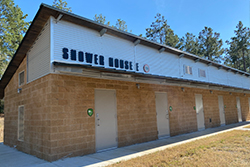
 Shower houses are located along the main campsite road and are shared by three or four campsites. Each stall in the shower house is ADA compliant and has a toilet, sink, and shower facility. There are no gender-specific stalls in these shower houses.
Shower houses are located along the main campsite road and are shared by three or four campsites. Each stall in the shower house is ADA compliant and has a toilet, sink, and shower facility. There are no gender-specific stalls in these shower houses.
Recommended Troop Equipment
Patrol Equipment
Camp Leaders
-
Scoutmaster Handbook
- Cash box
- Alarm clock
- Folding chair and table
- Bulletin Board:
- Camp roster
- Troop duty roster
- Scout schedules
- Pushpins
All units will be sharing campsites.
When setting up camp, utilize space wisely and be courteous.
|
Unit Equipment
- Troop sign (should include troop number)
- Troop flag
- US flag
- Twine and poles for lashing
- Lanterns
- Matches/lighters
- Dining fly(s), optional
- Rope
- Tents, poles & stakes*
- Five-gallon water buckets (with lids)
- Ice chests, optional
- Trash
- Lockable storage container to hold medications; the locked container containing medication is to be stored in a locked vehicle
- Troop first aid kit
- Compass
- Service project gear: shovels, rakes, hoes, bow saws, loppers, hammers
- Firewood (if no burn ban)
- Clothesline and clothespins (do not hang on trees or the pavilion)
Optional
- Hose, optional
- Hand washing station to put next to the water spigot, recommended (e.g., small bucket, bar of soap)
- Camping washing machine (e.g., 5-gallon bucket with a hole in the top, plunger) and laundry detergent, optional
- Ingredients and cooking gear for Scoutmaster cooking competition (main dish, dessert, side dish) cooked in the campsite), optional
- Zip ties (20"+, wide, industrial-strength) or twine. All items must be removed be leaving camp.
- Large tarps or plastic sheeting to attach to the pavilion for windbreaks.
- Painter's tape. Painter's tape is the only tape allowed to be used at Camp Strake. Do not use any other tape (e.g., Duct tape).
- Sports equipment, optional (e.g., Frisbees for Frisbee golf course, football, soccer ball, fishing poles/gears)
|
Required Paperwork / Deadlines
The following paperwork must be provided by the unit leader during check-in.
| Paperwork |
|
|
| Dec. 26 |
Medical Forms |
Bring two copies of the BSA Annual Health and Medical Record (see specific instructions) |
| Dec. 26 |
Medication Forms |
Bring a Routine Drug Administration Record for each Scout with medications that will need to be administered. (see specific instructions) |
| Dec. 26 |
Unit Roster |
Bring a copy of the unit roster printed from my.scouting.org used to verify BSA registration. Highlight the names of Scouts attending camp for quicker verification during check-in. |
| Dec. 26 |
Training Roster |
Bring a unit training roster printed from my.scouting.org. Highlight adults attending camp. |
| Dec. 26 |
YPT Cards |
Bring a copy of every adult's YPT card. To obtain a copy of the YPT certificate, go to my.scouting.org, click on Menu (upper left corner), click on My Training, click on the printer icon next to YPT status. |
| Dec. 26 |
Merit Badge Schedules |
Bring a printed copy of the schedule for each Scout. Go to http://app.doubleknot.com/signon/2509, click on Registration tab, Reports drop-down, and select Unit Schedule with page breaks. Print after Dec 23rd. (Doubleknot support / request merit badge change). |
| Dec. 26 |
ATV Forms |
Bring ATV forms for Scouts participating in ATV (learn more). Ensure they complete the online training before camp. |
| Dec. 26 |
OA Brotherhood Eligible |
Bring a list of Scouts who have been in the Order of the Arrow for more than six months and are eligible for Brotherhood. |
| Dec. 26 |
Out-of-council units |
Out-of-council units bring a proof of insurance form (provided by your home council). |
Health, Medical, and Safety Issues



 Health Lodge
Health Lodge
The Health Lodge is located in the Headquarters Building. The Health Lodge at camp is available 24 hours a day and is prepared to handle minor injuries and illnesses. The buddy system should be followed at all times.
For minor injury or illness bring the Scout/adult to the Health Lodge for treatment. The waiting area for the health lodge is on the porch area just outside the building near the entrance to the health lodge. A screening will be conducted on the porch before any person is brought into the lodge for treatment.
For a major injury (broken bones, unconsciousness, unsure), send a runner to the Health Lodge and medical staff will come to the Scout or adult. Please do not move a Scout or adult with a major injury! Any emergency that cannot be treated at the health lodge will be referred to a local hospital or doctor’s clinic. The unit leader or assistant will transport the patient to the outside medical facility. In the event of a medical emergency, report to the health lodge at the camp headquarters building.
- If the camp medics are not in the office, there is a whiteboard near the door that will advise how to reach them.
- Every Scout and adult who attends camp MUST have an annual BSA Annual Health and Medical Record completed within the last 12 months prior to attending camp. A copy of your health record will be turned in during check-in at camp.
- The camp reserves the right to refuse admittance to a Scout who, in the opinion of the camp health officer and the camp director, has any physical or medical problem which could present a hazard to themselves or other Scouts. Scouts may be sent home at their expense.
Hospital or Doctor Treatment
Should any participant at Camp Strake require medical treatment beyond the first-aid capabilities provided by camp staff at the health lodge, they will be evacuated to the nearest medical treatment facility. Special arrangements for the treatment of more serious cases have been made with physicians and hospitals at the nearest hospital, Conroe Regional Medical Center, 504 Medical Center Blvd, Conroe, TX. If such treatment is required, the camper's parent(s) will be notified by telephone, and their desires concerning further treatment will be respected.
In the event that a camper requires the attention of a doctor or the services of a hospital, the following procedure must be followed:
- The responsibility of the unit leadership is to provide transportation for unit member(s) requiring services from a doctor or hospital.
- One adult leader from the unit will accompany the unit member(s) requiring services from a doctor or hospital and is asked to carry insurance forms in for completion. He must obtain the individual's health record from the health officer before going to the doctor or hospital.
- Parent(s) or guardian(s) will be immediately notified by the winter camp health officer of any serious illness or injury.
- The camp will provide transportation ONLY when a unit has none available.
- Directions to doctor's offices and hospitals will be available at the health lodge.
- All cases requiring outside medical care must be cleared by the camp health officer. This is an agreement with the local health services facilities, insurance company, and a claim procedure.
- Check back in with the health officer upon return to camp and return the health form.
Any clarification of the above procedures may be obtained by discussing them with the health officers on duty at the health lodge.
Health Special Risk (HSR) Insurance
All registered members of Sam Houston Area Council troops are covered by Health Special Risk (HSR) unit insurance. Should a Scout or Scouter need professional medical assistance (meaning greater care that the camp can offer), the family’s primary health insurance must be used. If a family does not have health coverage, the council’s HSR policy will become the primary policy and cover 100% of eligible costs up to a $15K maximum per incident. Families will be contacted by Wayne McLeland to discuss how to coordinate benefits with the council’s secondary coverage after camp is concluded. “out of council” troops must provide proof of accident and sickness insurance upon arrival at camp.
BSA Annual Health and Medical Record (AHMR)



 Because winter camp is longer than 72 hours, every participant must have Parts A, B1, B2, and C even if they will be at camp for less than 72 hours. When bringing forms for check-in, please do not bring the form in a binder or plastic sheeting. Parts A, B, and C should be stapled for one person. This will allow the staff to efficiently review and file the forms. There is no room in the office to store troop binders. Do not provide original forms. Learn more about medical forms in the Participant Guide.
Because winter camp is longer than 72 hours, every participant must have Parts A, B1, B2, and C even if they will be at camp for less than 72 hours. When bringing forms for check-in, please do not bring the form in a binder or plastic sheeting. Parts A, B, and C should be stapled for one person. This will allow the staff to efficiently review and file the forms. There is no room in the office to store troop binders. Do not provide original forms. Learn more about medical forms in the Participant Guide.
Medications



BSA National Camping Standards (HS-508) states the following rules apply to the storage and administration of medication:
HS-508: Medication Control (revised January 1, 2020)
A. The camp requires that all prescription and over-the-counter (OTC) medications be stored under lock (including those requiring refrigeration), except when in the controlled presence of healthcare staff or other adult leader responsible for administration and/or dispensing medications.
1. An exception may be made for a limited amount of medication to be carried by a camper, leader, parent, or staff member for life-threatening conditions, including epinephrine injector, heart medication, and inhalers, or for a limited amount of medication approved for use in a first-aid kit.
B. Medications must be 1. Kept in their original containers; or 2. Labeled and maintained in a fashion approved by the council health supervisor.
C. Medications must be administered and/or dispensed as follows: 1. For prescription medications, in accordance with the prescribing healthcare provider’s directions or a parent/guardian’s signed summary thereof. 2. For OTC medications, in accordance with the original label, except as otherwise provided by the council’s health supervisor, or a prescribing healthcare provider’s directions, or a parent/guardian’s signed summary thereof.
Locked refrigerated storage is available in the health lodge. The camp medical staff shall advise the acting Scoutmaster as to whether a medication falls under exceptions (HS-508A1).
Learn more about medication rules at camp.
Special Accommodations
If a participant has special medical needs, such as refrigeration for medicine, please ensure that information is included in the online registration. CPAP machines must be battery-powered, as power outlets close to campsites are scarce; however, the camp staff will attempt to meet reasonable requests to accommodate timely requests submitted through registration. Participants may need to bring specialty items to help make some requests possible. Learn more about special dietary needs.
Youth Protection
As a residential camp accredited by the Boy Scouts of America, all youth protection policies set forth by the Boy Scouts of America are followed. In addition, the State of Texas has statutes and regulations concerning youth protection that also apply. No exceptions to these policies may be made.
Two-Deep Leadership
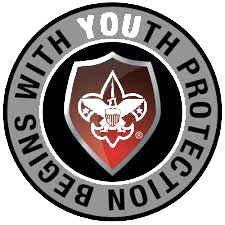


 It is the policy of the Boy Scouts of America that trips and outings may never be led by only one adult. At least two adult leaders, one of whom must be 21 years or older, are required for trips or outings. It is the responsibility of the chartered organization of any troop to inform the committee and leadership of the unit that sufficient adult leaders are provided on all trips and outings.
It is the policy of the Boy Scouts of America that trips and outings may never be led by only one adult. At least two adult leaders, one of whom must be 21 years or older, are required for trips or outings. It is the responsibility of the chartered organization of any troop to inform the committee and leadership of the unit that sufficient adult leaders are provided on all trips and outings.
Adult leaders may rotate in and out as needed so long as there are two adult leaders from each troop on the property at all times. Every leader must be registered and have an Adult in Camp Compliance form completed. When such rotations occur, adults must check-in and out of the winter camp office so that our staff is made aware of the identity and contact information for all adult leaders for each troop in camp.
Texas Youth Camp Safety and Health Act
In order to protect the health and safety of youth attending residential camps in the State of Texas, the Texas legislature has enacted the Texas Youth Camp Safety and Health Act. While many portions of this statute concern the facilities and staffing of a youth residential camp, portions of this law affect troops directly.
All adults coming to camp, whether working on staff or not, must complete the Adult in Camp Compliance form no later than December 15th. Completing this form allows council office staff to complete a criminal background check on each adult in camp (regardless of time spent in camp).
Youth Protection Training (YPT)
Every adult in camp must take Youth Protection Training (YPT) online at My.Scouting.org (expires every two years).
A copy of every adult's YPT certificate must be provided to the council office. To obtain a copy of the YPT certificate, go to My.Scouting.org, click on Menu (upper left corner), click on My Training, click on the printer icon next to YPT status.
Emergencies
The camp has emergency phone numbers posted near all camp office telephones and FM radio communication throughout the camp. In an emergency, the camp director, or designee, will initiate emergency procedures depending upon the situation. During emergencies, adult leaders should supervise their own unit’s response appropriately.
Emergency signals
There are two types of emergency alarms. The first is a solid tone for general emergencies. Upon hearing the camp alarm (siren), the troop must immediately be assembled at the troop campsite, a headcount taken, and then the senior patrol leader reports attendance to the staff member in charge, and awaits further instructions. If for whatever reason the campsites are unsafe, the staff will direct people to the grand pavilion as a secondary assembly area. Stay at the assembly area until the all-clear is given.
The second type of alarm will be a pulsing siren. This signifies a weather emergency. This part of Texas is prone to afternoon thunderstorms during the summer, with potential for the formation of tornados. Whenever a serious storm approaches, everyone in the camp should move into the nearest designated shelter. All permanent structures at Camp Strake are suitable shelters during an emergency.
Emergency Evacuation
In the event of a fire or other hazardous condition that requires evacuation of the camp, instructions will be provided by the camp staff at the Grand Pavilion on procedures to follow to exit camp as quickly as possible, while maintaining accountability of staff and campers.
Drills
In accordance with BSA National Camping Standards (AO-805), an emergency drill will be conducted during camp. Every person must report to their campsite when the alarm is sounded, drill or no drill! Assigned staff will visit campsites to conduct a head count and consult with the unit leaders.
Council Insurance
The Sam Houston Area Council Accident and Sickness Insurance plan covers registered Scouts and adult leaders while at camp. (Please register parents staying with your troop as a member of your troop committee). This coverage does not include out-of-council units. Out-of-council units should bring a claim form from their council.
The Accident and Sickness Insurance plan is with Health Special Risk, Inc. and is excess coverage. This means any bill with a remaining balance after it has been processed by the family's medical insurance carrier can be submitted to Health Special Risk, Inc. for additional reimbursement. Families without insurance will receive instructions from Health Special Risk, Inc., but in any event up to $15,000 of coverage for sickness or injury is provided (Special coverage limits cover dental and transportation). For additional information, contact wayne.mcleland@scouting.org.
General Information
Camp Headquarters
Headquarters houses the camp phone, lost and found, troop mail, camp director's office, program director's office, camp commissioner office, quartermaster, trading post, health lodge, and business manager's office. Office hours will be posted.
Special Accommodations
If a Scout has special needs, camp staff will do whatever they can to accommodate them. The troop leader should notify the camp staff of any requests during online registration.
Buddy System
All Scouts should adhere to the buddy system throughout camp. Scouting’s buddy system calls for Scouts to pair up with a friend or two for all activities. This helps ensure safety and accountability and teaches Scouts to have responsibility for others. No Scout should ever be found wandering through camp alone. The buddy system can be difficult if a Scout doesn't have scheduled classes with fellow members of their troop. Troop leaders are encouraged to attempt to pair Scouts in classes as much as possible. If this is not feasible, the Scout should walk with other Scouts in the class to the location of the merit badge class. Due to the number of Scouts and the short amount of time between classes, this should be a relatively simple exercise.
Lost and Found
Lost and found is located in the winter camp office. Items will be kept in the winter camp office through the end of winter camp. Any items left at Camp Strake after winter camp may be disposed of as determined at the discretion of the camp director, including being donated to a non-profit organization, returned to the council office, thrown in the trash, etc. Sam Houston Area Council, nor its staff, shall be held responsible for any lost items not claimed by the end of winter camp.
To assist in returning items to their rightful owner, please ensure that all items your troop brings to camp have the owner’s name and troop number marked on them.
Smoking / Vaping Policy
Per the Guide to Safe Scouting, smoking or vaping by youth at any Scouting event shall not be tolerated.
"An important way adult leaders can model healthy living is by following the policies on alcohol, tobacco, and drugs. Leaders should support the attitude that they, as well as youths, are better off without tobacco in any form and may not allow the use of tobacco products at any BSA activity involving youth participants. This includes the use of electronic cigarettes, personal vaporizers, or electronic nicotine delivery systems that simulate tobacco smoking. All Scouting functions, meetings, and activities should be conducted on a smoke-free basis, with smoking areas located away from all participants. As outlined in the Scouter Code of Conduct, Scouting activities are not a place to possess, distribute, transport, consume, or use any of the following items prohibited by law or in violation of any Scouting rules, regulations, and policies: alcoholic beverages or controlled substances, including marijuana. In addition, the Code of Conduct specifies that if you are taking prescription medications with the potential of impairing any functioning or judgment, you will not engage in activities that would put Scouts at risk, including driving or operating equipment." Source
Smoking by adults is not permitted in any tent, pavilions or buildings. While smoking at camp is discouraged, adults who choose to do so in the designated areas and must not smoke within sight of any youth. Moreover, in the event of a burn ban, smoking may be prohibited on the property. Please check with the camp office to determine whether such a burn ban is in place.
Alcohol, Illegal Drugs or Stimulants
The consumption, possession or use of alcohol or illegal drugs or controlled substances while participating in the program at Camp Strake is not permitted. All local, state and federal laws will be enforced when a violation involving the above substances is reported. Violators will be asked to leave the camp immediately.
Personal Firearms
Personal firearms, ammunition, bows and arrows, and fireworks are not allowed in camp.
Fires, Liquid Fuels and Propane
Fires are to be built only in the designated areas and under proper supervision. Liquid fuels are not permitted. Propane is to be used only under adult supervision. Empty cylinders and cans must be given to the camp quartermaster for disposal. National policy prohibits the use of open flames in tents. This includes mosquito coils, catalytic heaters, gas lanterns, stoves, candles, and smoking material. All tents and flys must be marked with "No Flames in Tents." (Source)
Internet Access
There is established Wi-Fi for leaders and campers. The leader's lounge, dining hall, and camp headquarters breezeway area provide the strongest signal and can be utilized for work meetings and other needs.
Transportation
BSA National Vehicle Insurance Requirements
Each troop is responsible for safe transportation to and from camp and meets the requirements as laid out in the current version of the Guide to Safe Scouting.
Use of Vehicles / Trailers In Camp
Upon arrival at camp, drivers of vehicles will be provided parking passes. Drivers must write their name and cell phone number on the parking pass itself and keep it visible on their dashboard when the vehicle is on camp property. The name and phone number on the parking pass will allow our security staff to contact the vehicle's owner in the event the vehicle needs to be moved or if any other issues arise. Vehicles without proper parking permits found on camp property may be towed at the owner’s expense.
Under no circumstances should a vehicle or trailer enter the campsite at any time. Entry of vehicles into the campsite could leave unsightly ruts in the campsite and could possibly damage plumbing located close to the surface. Parking areas are provided at designated locations for leaders who drive vehicles. Only camp vehicles are permitted beyond the parking lot or on camp service roads. Vehicle permits will be distributed at check-in, along with maps designating parking locations for various vehicles.
Camp Strake is a walking camp. Vehicles should not be moved from these parking areas during camp unless the driver is leaving camp or has specific permission to move the vehicle (e.g., staff members given permits to use vehicles to transport equipment daily). This is a necessary measure due to the heavy use of roads by pedestrians, including hundreds of Scouts moving back and forth to merit badges and other activities. Troop trailers are to be parked in the available parking areas in front of each campsite. Personally owned vehicles are not allowed to drive through the middle of camp.
The speed limit in camp is 10 mph on blacktop roads (unless otherwise posted) and 5 mph on gravel or dirt roads.
Drivers who continue to violate rules regarding the operation of vehicles in camp will be asked to leave camp immediately.
Bikes
Campers are permitted to use non-motorized personal bicycles in specific areas of camp. Helmets are required when riding a bike.
Bikes can only be ridden on the asphalt loop around the outer rim of the campsites and on the road to climbing and shooting sports. Bikes can not be ridden through camp (Camp Central Road, Aquatics Road, and/ or near Headquarters, STEM Center, the Dining Hall, or Grand Pavilion). Please be sure to bring a bike lock for security. Please note that Sam Houston Area Council and Camp Strake are not responsible for damages/ thefts to personal bikes and injuries caused by such tools.
Scouts taking the Cycling Merit Badge can bring their own mountain bike, but it will be inspected to make sure it meets course requirements.
Leaving and Returning to Camp
For the safety of all in camp, procedures have been implemented for leaving and returning to camp while camp is ongoing.
Adults Leaving and Returning
Scouters (aged 18 or older) may leave camp and return as needed; please keep trips in and out of camp to a minimum. Due to the large number of campers, excessive vehicular traffic presents a possible danger to pedestrians. Adults should check in and out with the winter camp office so that the camp leadership is aware of who is on the property at all times. In the event of an emergency, the camp leadership must be able to account for everyone at camp.
Youth Leaving and Returning
Parents are encouraged to allow Scout to remain at camp all week. This reduces unnecessary traffic in and out of camp and allows youth to have the complete camp experience with their troop. Youth will only be allowed to check out from camp prior to final checkout by an adult authorized on Part B of the Scout’s BSA Annual Health and Medical Record. Please ensure that parents in your troop have included all authorized adults on this form. Without this authorization on the form, only an adult from the Scout’s troop registered for camp or the parent signing the form will be allowed to remove the child from camp prior to the final checkout.
No one, including a Scout leader or parent, will be allowed to leave camp with a person under the age of 18 without having checked out at the winter camp office and receiving a ticket, which will be given to a security team member before leaving camp.
During checkout, on the last day of camp, adult leaders will receive exit tickets for all youth in their troop from their camp commissioner once they have successfully checked out.
Trading Post
The trading post is located in the camp headquarters building and is stocked with merit badge pamphlets, t-shirts, Scouting literature, handicraft supplies, camp patches, mugs, camping equipment, cold drinks, ice cream, drinks, and candy. The trading posts accept cash, and credit cards. Scouts who want to purchase a pocket knife must show their Totin' Chip. Hours for the trading post can be found on the doors to the trading post.
Shower Houses
Each campsite has modern restroom and shower houses within walking distance. Each latrine comes complete with two private modern toilets and a handwashing station. Each shower has individual showers for each Scout or adult. It is the responsibility of the troop leadership to monitor the behavior of the Scouts at the showers.
Every troop will have assigned latrine duty. The camp commissioner will provide a cleaning schedule during the daily leader's meeting. Cleaning materials will be at each facility and additional materials may be obtained for the camp commissioner.
Wild Animals
Winter camp is an outdoor experience, and the campers are visitors to the camp’s natural area. Scouts must remember to live up to the Outdoor Code and be considerate in the outdoors. Throwing rocks at or attempting to catch animals such as rabbits, snakes, armadillos, etc., is not only dangerous to the animal but to campers as well. Please immediately report any trouble with snakes or other animals to the camp staff.
Leave No Trace
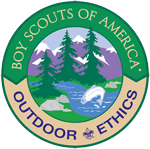


 Instilling values in young people and preparing them to make moral and ethical choices throughout their lifetime is the mission of the Boy Scouts of America. Leave No Trace helps reinforce that mission and reminds everyone to respect the rights of other users of the outdoors as well as future generations. Appreciation for our natural environment and knowledge of the interrelationships of nature bolster our respect and reverence toward the environment and nature. Leave No Trace is an awareness and an attitude rather than a set of rules. It applies in backyards or local parks as much as in the backcountry. All participants should practice Leave No Trace principles.
Instilling values in young people and preparing them to make moral and ethical choices throughout their lifetime is the mission of the Boy Scouts of America. Leave No Trace helps reinforce that mission and reminds everyone to respect the rights of other users of the outdoors as well as future generations. Appreciation for our natural environment and knowledge of the interrelationships of nature bolster our respect and reverence toward the environment and nature. Leave No Trace is an awareness and an attitude rather than a set of rules. It applies in backyards or local parks as much as in the backcountry. All participants should practice Leave No Trace principles.
The principles of Leave No Trace might seem unimportant until considering the combined effects of millions of outdoor visitors. One poorly located campsite or campfire may have little significance, but thousands of such instances seriously degrade the outdoor experience for all. Leaving no trace is everyone’s responsibility. All participants are asked to follow the seven principles of Leave No Trace.
- Plan Ahead and Prepare
- Travel and Camp on Durable Surfaces
- Dispose of Waste Properly (Pack It In, Pack It Out)
- Leave What You Find
- Minimize Campfire Impacts
- Respect Wildlife
- Be Considerate of Other Visitors
Meals
The first meal served is dinner on December 26th, so troops should plan to eat lunch before arriving at camp. The last meal provided is a grab-and-go breakfast served the morning of December 31st as troops prepare to check out and depart.
See the Participant Guide for more information about meals.
Special Dietary Needs
See the Participant Guide for information about special diets.
Tickets for special meals will be given to unit leaders at check-in. Participants will turn these tickets in at mealtime when they pick up their food. Depending on the need, it may be necessary for Scouts with special dietary requirements to bring food items to supplement items available at camp. Participants with special diets can request access to refrigerators, freezers, and microwaves to heat food, but actual cooking must be done at the campsite.
Food Service
Each unit is expected to provide volunteers to serve food for a minimum of one meal during camp.
Camp Arrival and Check-in
There are two methods through which check-in by a troop may be accomplished: early check-in at the Cockrell Scout Center, or on-site check-in at Camp Strake.
On-site check-in and Arrival
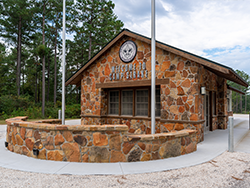
 Troops will be allowed to enter camp beginning at 1:30 pm on December 26th. Troops that arrive before 1:30 pm need to line up on the right side of the road entering camp. An excessive number of vehicles and trailers causes a line of vehicles to overflow onto FM 945. This presents a safety hazard.
Troops will be allowed to enter camp beginning at 1:30 pm on December 26th. Troops that arrive before 1:30 pm need to line up on the right side of the road entering camp. An excessive number of vehicles and trailers causes a line of vehicles to overflow onto FM 945. This presents a safety hazard.
Upon arriving in camp, troops need to park in the parking lot closest to their campsite, and the Scoutmaster or designee should proceed to the camp administration building to complete check-in. There will be a fast pass line for troops that completed early check-in. Units will receive their campsite assignment upon arrival.
Merit Badge Class Changes
Merit badge class changes can be done on December 26th during check-in, during both dinners, and after dinner until opening campfire.
Check-out
Because of the large number of troops and the compressed time frame in which check-out occurs, please read this section carefully to ensure a smooth checkout process.
Individual Check-Out Procedures
At any point during the week, if a Scout needs to depart from camp indefinitely (not returning at a later day/time), the Winter Camp Scoutmaster will need to notify the camp director and/or program director. The Scoutmaster will receive a check-out checklist for that particular Scout. The checklist will consist of checkpoints that the Scout needs to visit before departing — such as signatures from the medical officer, camp registrar, program director, camp director, Scoutmaster, and parent/guardian. Once the checklist has been correctly signed and filled out, the Scout will check out at HQ with their parent/guardian and then drop off the checklist at the check-in building when leaving camp.
Early Unit Checkout (December 30th)
Some troops may need to leave camp on the evening of December 30th. While all troops are encouraged to remain for the entire event, some troops may need to leave after closing the campfire. There is no discount for departing early.
As soon as your troop has determined that it wishes to check out early, please notify the camp commissioner’s office immediately. This will assist the camp commissioners in coordinating timely checkouts that evening.
- Breakdown camp, and pack the vehicles and troop trailer.
- The troop should also carefully police their campsite to ensure that it is left in better condition than it was found. If any tables or other items were moved by the troop, they should be returned to their original location.
- The troop should send someone to the camp commissioner's office to notify them that the troop is ready for a camp inspection and pick up the checkout packet at the winter camp office. Please be patient awaiting inspection as the camp commissioners are in high demand by troops attempting to check out of camp at this point.
- Once a camp commissioner has inspected the campsite and determined that it is in good condition, he or she will provide you with passes that will allow you to take your vehicles out of their parking areas and drive them carefully to the front of your campsite. You will also be provided tickets for each youth in your troop which will authorize you to remove the youth from camp. You will also need the pass and tickets to exit the camp that evening. Do not attempt to drive your vehicle to your campsite prior to receiving the pass and tickets from the camp commissioner.
- Please be mindful of the fact that camp vehicles and other troops attempting to pack are trying to get past you on the road. Ensure your vehicle is pulled as far off the road as is possible, without pulling into your campsite.
- Do not drive into the campsite or move your trailer into the campsite; trailers must remain on the paved road or in a parking space.
- Once the vehicles are loaded, the troop must return the vehicles to a valid parking area or immediately leave camp.
- Retrieve medical forms from the health lodge when the troop is ready to depart camp.
Under no circumstances, however, will a troop be allowed to check out on December 30th unless they have been cleared by a camp commissioner to load up their vehicles by 5:00 pm on December 30th. Troops who have packed may remain in camp through the conclusion of the closing campfire. The troop, at that time, should pick up their health forms from the medical lodge and then immediately and safely leave camp.
Unit Check-out (December 31th)
- Breakdown camp, and pack the vehicles and troop trailer.
- The troop should carefully police their campsite to ensure that it is left in better condition than it was found. If any tables or other items were moved by the troop, they should be returned to their original location.
- The troop should send someone to the camp commissioner's office to notify them that the troop is ready for a camp inspection and pick up the checkout packet at the winter camp office. Please be patient awaiting inspection as the camp commissioners are in high demand by troops attempting to check out of camp at this point.
- Once a camp commissioner has inspected the campsite and determined that it is in good condition, he or she will provide you with passes that will allow you to take your vehicles out of their parking areas and drive them carefully to the front of your campsite. You will also be provided tickets for each youth in your troop which will authorize you to remove the youth from camp. You will also need the pass and tickets to exit the camp that evening. Do not attempt to drive your vehicle to your campsite prior to receiving the pass and tickets from the camp commissioner.
- Please be mindful of the fact that camp vehicles and other troops attempting to pack are trying to get past you on the road. Ensure your vehicle is pulled as far off the road as is possible, without pulling into your campsite.
- Do not drive into the campsite or move your trailer into the campsite; trailers must remain on the paved road or in a parking space.
- Once the vehicles are loaded, the troop must return the vehicles to a valid parking area or immediately leave camp.
- Retrieve medical forms from the health lodge when the troop is ready to depart camp.








Topics:
Merit Badge Classes
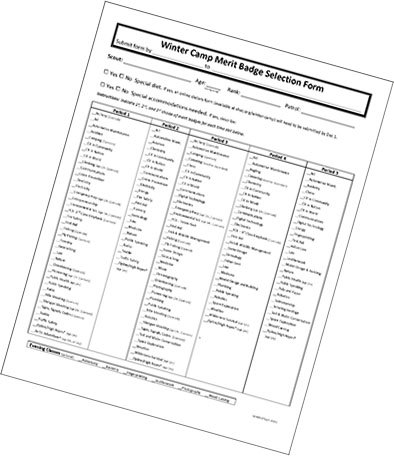


 Units can use the 2023 Merit Badge Selection Form (will be released soon) so Scouts can list their preferred classes. Before printing or emailing, add the due date and whom the form needs to be returned to at the top of the page.
Units can use the 2023 Merit Badge Selection Form (will be released soon) so Scouts can list their preferred classes. Before printing or emailing, add the due date and whom the form needs to be returned to at the top of the page.
Classes that are full will not show up in the online registration (Doubleknot).
2023 Merit Badge Selection Form Camp Schedule
2023 Program
|
|
Period
|
Age*
|
Prerequisite and other notes
(Learn more about prerequisites and requirements not covered.)
|
| 1 |
2 |
3 |
4 |
5 |
E |
First Year Camper
|
| Tenderfoot emphasis |
|
♦ |
|
|
|
|
|
|
The First-Year Camper Program is a program for first-year Scouts that emphasizes the adventure of Scouting is fun and active and supports the patrol method. Learn More |
|
| Second Class emphasis |
|
|
♦ |
|
|
|
|
|
|
| First Class emphasis |
|
|
|
♦ |
|
|
|
|
Merit Badges
|
| American Business |
Location TBD |
|
|
|
♦ |
|
• Prerequisite: Read merit badge book.
• Not covered: #6, TBD
• Bring internet device and research or interview #6 notes, completed worksheet |
|
| Animation (2 periods) |
Midway 8 |
♦ |
|
♦ |
|
|
• Prerequisite: Read merit badge book. |
|
| Archery (2 periods) |
Archery Range |
♦ |
♦ |
|
|
|
• Prerequisite: Read merit badge book. |
|
| Art |
Pavilion E |
|
♦ |
♦ |
|
|
|
|
• Prerequisite: Read merit badge book.
• Not covered: #6 |
|
| Astronomy |
Pavilion D |
|
|
|
|
|
♦ |
|
• Prerequisite: Read merit badge book.
• Recommend preparing using the workbook |
|
| Automotive Maintenance (2 periods) |
Maintenance Barn 3 |
♦ |
|
♦ |
|
|
• Prerequisite: Read merit badge book. |
|
| Aviation |
Pavilion L |
♦ |
♦ |
|
|
|
|
|
• Prerequisite: Read merit badge book.
• Not covered: #4 |
|
| Basketry |
Pavilion J |
|
|
|
|
♦ |
♦ |
|
• Prerequisite: Read merit badge book. |
|
| Camping (2 periods) |
Pavilion C |
♦ |
♦ |
|
|
|
• Prerequisite: Read merit badge book.
• Not covered: #3, 4b, 5e, 7b, 8d, 9 |
    |
| Chemistry |
STEM Lab |
|
♦ |
|
♦ |
|
|
|
• Prerequisite: Read merit badge book. |
|
| Chess |
Pavilion F |
|
|
♦ |
|
♦ |
|
|
• Prerequisite: Read merit badge book.
• Not covered: #6 (complete after class)
• Bring: chessboard |
|
| Citizenship in the Community |
Grand Pavilion |
♦ |
♦ |
♦ |
♦ |
♦ |
|
|
• Requirements not covered: #2, 3, 4, 7, 8
• Prerequisite: Read merit badge book
• Not covered: 3, 4, 7, 8
• Bring #2 (community map and government chart), completed worksheet |
|
| Citizenship in the Nation |
Dining B |
♦ |
♦ |
♦ |
♦ |
♦ |
|
|
• Prerequisite: Read merit badge book. Watch the national news for five days for #5. Research #6
• Not covered: #7, 8 (and #5, 6 if not prepared)
• Bring copies of #8 (letters) and highly recommend preparing & bringing completed worksheet |
    |
| Citizenship in the World |
Dining A |
♦ |
♦ |
♦ |
♦ |
♦ |
|
|
• Prerequisite: Read merit badge book. Prepare #3 (a current world event or geography topic to discuss during class).
• Not covered: #7 (and #3, 4 if not prepared)
• Bring #4, 7; highly recommend preparing & bringing completed worksheet |
    |
| Climbing (2 periods) |
Climbing Tower |
♦ |
|
♦ |
|
13+ |
• Prerequisite: Read merit badge book.
• Scouts must have the strength to physically handle climbing. |
|
| Communication |
Midway 1 |
♦ |
♦ |
♦ |
♦ |
♦ |
|
|
• Prerequisite: Read merit badge book. Prepare #2, 3
• Not covered: #5, 7, 8 (#2, 3 if not prepared)
• Bring #2 and #3 (~800 words); highly recommend preparing & bringing completed workbook |
    |
| Crime Prevention & Fingerprinting |
Midway 7 /
Pavilion B |
|
|
|
|
♦ |
|
• Prerequisite: Read merit badge book.
• Requirements not covered: Crime Prevention: #2, 4 7
• Fingerprinting is taken as an evening course. |
|
Cycling
(3 periods; mountain bikes) |
|
|
|
♦ |
|
|
• Prerequisite: Read merit badge book.
• The class is physically demanding. Must be able to ride on trails. There will be evening rides. You may bring your own mountain bike and helmet, but it must meet specifications. All equipment is provided. |
    |
| Dentistry |
Midway 6 |
♦ |
♦ |
|
|
|
|
|
• Prerequisite: Read merit badge book.
• Not covered: #3 |
|
| Digital Technology |
Midway 3 |
|
|
♦ |
♦ |
♦ |
|
|
• Prerequisite: Read merit badge book; bring verification of completing the Cyber Chip
• Bring a tablet or laptop with wifi, merit badge book, and email address |
|
| Electricity |
Maintenance Barn 1 |
♦ |
♦ |
|
|
|
|
|
• Prerequisite: Read merit badge book.
• Not covered: #2, 9a |
|
| Electronics & Radio |
STEM Bldg |
|
|
♦ |
|
|
|
• Prerequisite: Read merit badge book. |
|
Emergency Preparedness
(2 periods) |
Pavilion J |
♦ |
♦ |
|
|
13+ |
• Prerequisite: Read merit badge book, have already earned the First Aid Merit Badge
• Not covered: #2c, 7a, 9
• Bring: #8b (photo of family emergency kit); highly recommend preparing and bringing complete worksheet |
    |
| Energy |
Midway 4 |
|
♦ |
|
|
♦ |
|
|
• Prerequisite: Read merit badge book.
• Not covered: #4 |
|
| Entrepreneurship |
Boat Dock Pavilion |
♦ |
|
|
|
|
|
|
• Prerequisite: Read merit badge book; be prepared for #4, 5
• Requirements not covered: #3 (#4, 5 if not prepared) |
|
Environmental Science
(2 periods) |
Pavilion M |
♦ |
♦ |
|
|
13+ |
• Recommended for older Scouts
• Prerequisite: Read merit badge book.
• Not covered: #1, 2, 3
• Bring: highly recommend preparing & bringing completed worksheet
• Note: 4b is done during free time. |
    |
| Fire Safety |
Arena |
♦ |
|
|
|
|
|
|
• Prerequisite: Read merit badge book.
• Not covered: #6, 11 |
|
| First Aid |
Aquatics Center |
♦ |
♦ |
♦ |
♦ |
♦ |
|
|
Prerequisite: Read merit badge book; must have completed all first aid requirements for Tenderfoot through First Class rank (refer to #1)
• Not covered: #5b
• Bring: #5a (first aid kit), highly recommend preparing & bringing completed worksheet |
    |
| Fishing (2 periods) |
Fishing Pavilion |
♦ |
|
|
|
|
|
• Prerequisite: Read merit badge book.
• #9 might not be completed if fish isn't caught at camp. |
|
| Fly Fishing (2 periods) |
Fishing Pavilion |
|
|
♦ |
|
|
|
• Prerequisite: Read merit badge book.
• #10 might not be completed if fish isn't caught at camp. |
|
| Fish and Wildlife Management |
Water Obstacle Pavilion |
|
|
♦ |
|
|
|
• Prerequisite: Read merit badge book. |
|
| Forestry |
Pavilion D |
|
|
♦ |
♦ |
|
|
|
• Prerequisite: Read merit badge book.
• Not covered: #5 |
|
| Game Design |
Pavilion G |
|
|
♦ |
♦ |
|
|
|
• Prerequisite: Read merit badge book.
• Not covered: #5,6,7,8.
• Focus will be on non-electronic/programmed games. |
|
| Geocaching (2 periods) |
Midway 6 |
|
|
|
♦ |
|
|
• Prerequisite: Read merit badge book.
• Not covered: #7, 9 |
|
| Geology |
2nd: STEM Bldg
4th: Pavilion E |
|
♦ |
|
♦ |
|
|
|
• Prerequisite: Read merit badge book.
• Prerequisite: Watch these 2 videos. Video 1. Video 2
|
|
| Health Care Professions and Public Health (2 periods) |
Midway 2 |
♦ |
♦ |
|
|
14+
(due to topics) |
• Prerequisite: Read merit badge book.
• Not covered: Health Care #5
• Not covered: Public Health #1, 7, 8 |
|
| Hiking (3 periods) |
Legacy Pavilion |
♦ |
|
|
|
|
• Prerequisite: Read merit badge book.
• Not covered: #4, 5
, Bring: recommend preparing using worksheet |
    |
| Indian Lore |
Pavilion F |
|
♦ |
|
♦ |
|
|
|
• Prerequisite: Read merit badge book
• Not covered: #3, 4 |
|
| Law |
Midway 7 |
♦ |
♦ |
|
♦ |
|
|
|
• Prerequisite: Read merit badge book. |
|
| Leatherwork |
Pavilion E |
|
|
|
|
♦ |
♦ |
|
• Prerequisite: Read merit badge book. |
|
| Metalwork |
|
♦ |
|
♦ |
|
|
|
|
• Prerequisite: Read merit badge book.
• Bring: gloves (leather or vegan leather alternative), long-sleeve shirt, and long pants. |
|
| Model Design and Building |
Midway 10 |
|
|
|
♦ |
♦ |
|
|
• Prerequisite: Read merit badge book.
• Not covered: TBD |
|
| Moviemaking (2 periods) |
Midway 5 |
♦ |
♦ |
|
|
|
• Prerequisite: Read merit badge book.
• Bring a cell phone or video camera and a computer or phone with video editing software |
|
| Music |
Midway 9 |
|
|
♦ |
|
|
|
|
• Prerequisite: Read merit badge book.
• Not covered: #3, 4
• Bring #1 (be prepared to play or sing; bring instrument if applicable) |
|
| Nature |
Pavilion D |
♦ |
♦ |
|
|
|
|
|
• Prerequisite: Read merit badge book. |
|
| Nuclear Science |
Pavilion K |
|
♦ |
|
♦ |
|
|
|
• Prerequisite: Read merit badge book. |
|
| Oceanography |
Boat Dock Pavilion |
|
|
♦ |
♦ |
|
|
|
• Prerequisite: Read merit badge book. |
|
| Orienteering (2 periods) |
Pavilion P |
♦ |
♦ |
|
|
|
• Prerequisite: Read merit badge book.
• Not covered: #10 |
|
| Painting |
Pavilion G |
♦ |
♦ |
|
|
|
|
• Prerequisite: Read merit badge book. |
|
| Personal Fitness |
TBD |
|
|
|
|
♦ |
|
|
• Prerequisite: Read merit badge book
• Not covered #1, 7, 8
• Bring: Completed worksheet |
|
| Personal Management |
TBD |
♦ |
♦ |
|
♦ |
♦ |
|
|
• Prerequisite: Read merit badge book.
• Requirements not covered: #2, 8
• Bring completed worksheet |
|
| Photography |
2nd: 1st: Midway 9
3rd: Midway 8
E: Pavilion M |
|
♦ |
♦ |
|
|
♦ |
|
• Prerequisite: Read merit badge book. Completed Cyber Chip.
• Not covered: 7
• Bring: proof of current Cyber Chip and DSLR camera to complete #4,5,6 |
|
| Pioneering (2 periods) |
Pavilion B |
♦ |
♦ |
|
|
13+ |
• Prerequisite: Read merit badge book.
• Might be a partial if Scout is unable to splice at camp |
|
| Plumbing |
Maintenance Barn 2 |
♦ |
|
|
♦ |
|
|
|
• Prerequisite: Read merit badge book. |
|
| Programming |
Pavilion K |
♦ |
|
♦ |
|
|
|
|
• Prerequisite: Read merit badge book. Completed Cyber Chip.
• Bring: proof of current Cyber Chip |
|
| Railroading |
Midway 4 |
|
|
♦ |
♦ |
|
|
|
• Prerequisite: Read merit badge book.
• Not covered: #7 |
|
| Rifle Shooting (2 periods) |
Rifle Range |
♦ |
♦ |
|
|
|
• Prerequisite: Read merit badge book.
• Might be a partial if Scout is unable to qualify shooting skills. |
|
| Robotics |
STEM Bldg |
|
|
♦ |
♦ |
|
|
|
• Prerequisite: Read merit badge book. |
|
| Salesmanship |
Boat Dock Pavilion |
|
|
|
|
♦ |
|
|
• Prerequisite: Read merit badge book.
• Not covered: #5 |
|
| Scouting Heritage |
Midway 9 |
|
|
|
|
♦ |
|
|
• Prerequisite: Read merit badge book.
• Not covered: #4, 5, 6 |
|
| Search and Rescue |
Pavilion A |
♦ |
♦ |
|
|
|
• Prerequisite: Read merit badge book. |
|
| Shotgun Shooting (2 periods) |
Shotgun Range |
♦ |
♦ |
|
|
13+ |
• Prerequisite: Read merit badge book.
• Recommended for Scouts who can physically handle the recoil of the gun. Might be a partial if Scout is unable to qualify shooting skills. |
|
| Space Exploration |
Pavilion L |
|
|
♦ |
♦ |
♦ |
|
|
• Prerequisite: Read merit badge book. |
|
| Traffic Safety |
1st: Midway 9
3rd: Midway 6
5th: Midway 3 |
♦ |
|
♦ |
|
♦ |
|
|
• Prerequisite: Read merit badge book. |
|
| Truck Transportation |
Maintenance Barn |
|
♦ |
|
♦ |
|
|
|
• Prerequisite: Read merit badge book.
• Not covered: #4 |
|
| Weather |
Midway 10 |
|
|
♦ |
♦ |
|
|
|
• Prerequisite: Read merit badge book. |
|
| Welding |
Maintenance Barn |
♦ |
|
♦ |
|
13+ |
• Prerequisite: Read merit badge book.
• Bring: 2 pens; must wear hiking boots (no running shoes, or plastic or nylon shoes) and a 100% cotton shirt and pants (e.g., jeans). AWS provides welding jackets, gloves, and helmets. |
|
| Woodwork |
Pavilion H |
♦ |
♦ |
|
|
|
• Prerequisite: Read merit badge book. Completed the Totin' Chip.
• Bring: proof of earning Totin' Chip. |
|
| Wood Carving |
Pavilion H |
|
|
|
|
♦ |
♦ |
|
• Prerequisite: Read merit badge book. Completed the Totin' Chip.
• Bring: proof of earning Totin' Chip. |
|
Older Scout Programs
|
| Zipline / COPE |
Lakeview Pavilion (near climbing) |
♦ |
♦ |
♦ |
♦ |
♦ |
|
14+
required |
Not a merit badge class. |
|
| ATV (half-day) |
|
♦ |
♦ |
|
14+ required |
• Half-day program for older Scouts.
• Prerequisite: must complete mandatory online ATV training before camp.
• Bring: see mandatory items to bring. |
|
*
Ages are recommendations based on staff experience. Unless noted as required, these are highly recommended for the Scoutmaster to recommend to Scouts.
E = Evening (two 2-hour classes on the evening of the 27th & 28th) 


 = Eagle Scout Required
= Eagle Scout Required
Merit Badges
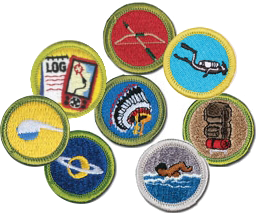


 The highlight of any camp is the program offered at that camp. In addition to numerous merit badge classes offered at winter camp, there is an energetic program staff that is dedicated entirely to planning great activities all week long.
The highlight of any camp is the program offered at that camp. In addition to numerous merit badge classes offered at winter camp, there is an energetic program staff that is dedicated entirely to planning great activities all week long.
Dozens of different merit badges will be offered including many Eagle Scout-required merit badges.
Best of all, many of our merit badges are taught by adults with decades of experience in the field the merit badge aims to cover.
Class periods will be scheduled for Scouts to earn merit badges, work on skills toward the trail to First Class rank or participate in an activity period.
Some classes have extremely limited space due to facilities or equipment (e.g., rifle shooting, shotgun shooting, archery, and welding). Please do not sign up a Scout for a merit badge that they have already started with another counselor or that they have already earned. This is unfair to other Scouts who wish to begin the process of earning the merit badge at winter camp.
In some cases, the merit badges cannot be completed during camp. Scouts will receive partial credit for any merit badge showing the requirements they completed. Troops should plan their program to help their Scouts complete the merit badges after camp.
Please keep in mind that, on occasion, merit badge classes may need to be canceled based on lack of interest or merit badge instructors. Scouts should be flexible in their goals for earning merit badges while at winter camp. While it is rare, sometimes a class must be canceled or merged.
Once a merit badge class is full, Scouts will not be allowed to register for the class. An Application for Merit Badges (blue cards) is not required; after camp, all of the completed requirements will be posted directly into Scoutbook. All fees associated with the merit badge program are included in the individual camp fee. No additional fees for program materials will be charged.
Merit Badges, Schedules, and Prerequisites
Prerequisites, Requirements Not Covered, Partials and Completions



 Attending a merit badge class does not guarantee that a Scout will complete the merit badge, but it is an opportunity for Scouts to meet with qualified counselors, to help them work on the requirements needed to complete a merit badge. Scouts should be ready to take notes and come prepared with notetaking materials and writing utensils. Remember one goal of the merit badge advancement system is to develop individual growth and initiative.
Attending a merit badge class does not guarantee that a Scout will complete the merit badge, but it is an opportunity for Scouts to meet with qualified counselors, to help them work on the requirements needed to complete a merit badge. Scouts should be ready to take notes and come prepared with notetaking materials and writing utensils. Remember one goal of the merit badge advancement system is to develop individual growth and initiative.
Prerequisites: All Scouts are to read the merit badge book prior to winter camp. Merit Badge books can be purchased at an area Scout Shop. Scouts are to be prepared to answer the questions to each of the requirements before camp; Scouts are highly encouraged to print and complete the worksheets available at http://usscouts.org/usscouts/mb/worksheets/list.asp to help them prepare. Some merit badges require additional prerequisites to be must be completed before the merit badge fair.
Requirements not covered: Some of the requirements cannot be completed during the class. The Scout should bring documentation of requirements not covered. If the Scout does not complete the requirements not covered and take documentation to the class, the Scout will receive a partial completion of the merit badge.
Partials: If the Scout does not complete the requirements not covered and bring documentation to the class, the Scout will receive a partial completion of the merit badge. The partial completion will be noted on the blue card, given to the Scout at the completion of the class. Scouts will need to complete the badge with a registered merit badge counselor approved for that particular badge back with their unit. Merit badge counselors are not usually available to serve as a counselor after merit badge fair ends unless arrangements are made. Find a list of merit badge counselors by logging into http://scoutbook.scouting.org with your my.scouting userID and password, click on My Dashboard, Administration, your unit and scroll down the page. Remember that a youth member must not meet one-on-one with an adult. Sessions with counselors must take place where others can view the interaction, or the Scout must have a buddy: a friend, parent, guardian, brother, sister, or other relatives—or better yet, another Scout working on the same badge.
Merit Badge Add/Drop
The Scoutmaster or designee should advise Scouts before selecting merit badges. Class sizes are limited. Merit badges can be added or dropped online.
The unit leader who registered the unit will need to log in to Doubleknot to make class changes. Troop leaders can submit a request to add another adult access to edit the troop's registration, make payments and pull reports.
To update or modify registration and/or to make a payment, go to https://samhoustonbsa.doubleknot.com/signon/2690 (instructions; questions and support). Only classes that have space available appear in the online registration system.
The unit leader can log in to the registration system to pull reports of class schedules and advancements completed at camp.
After the merit badge registration system closes, changes can only be made at the winter camp office on December 26th before 5:00 pm. The following rules will apply:
- Only one form may be turned in per unit.
- The form must be signed by the acting Scoutmaster for the troop
- The form must be filled out completely.
- Schedules will not be reprinted for troops making changes in camp.
- No changes will be accepted after 5:00 pm on December 26th.
Merit badge instructors are advised not to allow any Scouts to take their class unless they are listed on the roster.
Select / Edit Merit Badge Classes
First-Year Camper Program (FYC)
The First-Year Camper Program is a program for first-year Scouts that emphasizes the adventure of Scouting is fun and active and supports the patrol method. Scouts are formed into patrols with Scouts from other troops. As a patrol, they will have the opportunity to learn Scouting skills. The FYC instructors do not sign off on any skills. The Scout must then demonstrate the skills learned to their Scout leader. After demonstrating proficiency in each skill, the Scoutmaster or designee will then sign off the requirements in the Scout Handbook and Scoutbook. Sign up Scouts for this program in the online registration system just like signing up the Scouts for merit badge classes.
Scouts are given an opportunity to work on skills these skills:
Tenderfoot: 1c, 2b, 2c, 3a, 3b, 3c, 3d, 4a, 4b, 4c, 4d, 5a, 5b, 5c, 7a, 8, Totin Chip, Firm’n Chit
Second Class: 1b, 1c, 2a, 2b, 2c, 2d, 2f, 2g, 3a, 3c, 3d, 4, 5a, 5c, 5d, 6a, 6b, 6c, 6d, 6e, 8a, 8b, 9a,9b
First Class: 1b, 2a, 2b, 2c, 2d, 3a, 3b, 3c, 3d, 4a, 4b, 5a, 5b, 5c, 5d, 6b, 6c, 6d, 6e, 7a, 7b, 7c. 7d, 7f, 9a
Scout Attendance and Merit Badge Completions
The unit leader who registered the unit can log in to Doubleknot to pull reports and review advancements completed during camp. The winter camp merit badge counselors will input advancements completed in the evenings during free time.
On December 29th, Scoutmasters will be given a report for their Scouts that shows daily attendance and progress on their merit badge completion. Any incorrect information should be discussed directly with their merit badge counselor.
Please resolve any issues or discrepancies with your merit badge report before leaving camp. Counselors are available to help during camp.
How to Pull Reports
A few weeks after camp, advancements completed will be uploaded in Scoutbook and any advancements completed during camp will be checked as completed. The unit leader will then approve the merit badge requirements completed.
Additional Programs
Every day, there will be a separate meeting for Scoutmasters and senior patrol leaders. These meetings are important to get updates to the daily schedule and to discuss any opportunities for improvement to the camp or program.
Zipline / COPE Class
In lieu of a merit badge class, Scouts (ages 14+) can sign up for a session to participate in some high adventure elements. COPE stands for Challenging Outdoor Personal Experience. It comprises group initiative games, low, and high-course activities. Some of the activities involve a group challenge, while others test individual skills and agility; only a few require athletic strength. Participants climb, swing, balance, jump, rappel, and think of solutions to a variety of activities. Each event is designed to encourage participants to do their best using. The low course elements promote teamwork, problem-solving, trust, communication, decision-making, and leadership skills. For each scenario, the instructor will provide general instructions encouraging participants to work together to come up with a solution. On the high ropes course, Scouts move across suspended platforms and obstacles in midair. There are two different routes to choose from with different levels of difficulty. Scouts wear a harness and use a belay or clip-on clip-off system, so Scouts can take leaps of faith without worrying about what will happen if they misjudge the gaps. The zipline offers Scouts a bird’s eye view of camp while soaring over the beautiful lake on one of two 850’ zip lines.
ATV Program



 The high adventure program is a half-day program for older Scouts (14+). Participants will learn how to properly ride all-terrain vehicles (ATV). Once training is completed, Scouts will ride the ATVs on the trails with the instructors. Register Scouts for this program in the online registration system when signing up the Scouts for merit badge classes.
The high adventure program is a half-day program for older Scouts (14+). Participants will learn how to properly ride all-terrain vehicles (ATV). Once training is completed, Scouts will ride the ATVs on the trails with the instructors. Register Scouts for this program in the online registration system when signing up the Scouts for merit badge classes.
For ATV riding, participants must bring:
- several long sleeve shirts and long pants (recommend bringing 1 set/day)
- ankle-high boots
- other items recommended: riding gloves, head bandana, and a bag to carry muddy clothes.
- ATV Consent Form (signed by a parent/guardian)
- documentation of completion of part 1 of the ATV Safety Institute E-Course online before camp. There is no charge to take the 1-2.5 hour course (direct link).
Order of the Arrow (OA)
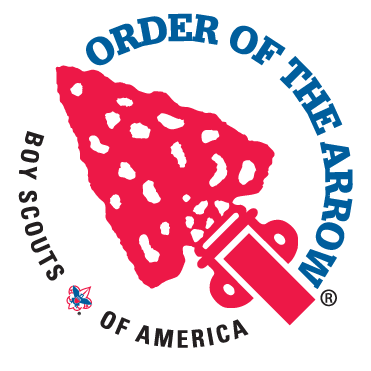


 Colonneh Lodge is the Sam Houston Area Council's Order of the Arrow Lodge. The lodge helps the council provide a quality Scouting program through recognition of Scouting spirit and performance, youth leadership development, service to the council camps and camping program, service to the district and council programs, service to the community, and enhanced membership tenure. Through the years, Colonneh Lodge Arrowmen have provided thousands of hours of service to the council’s camping properties. Looking around camp, it's easy to see ample evidence of the work lodge members have performed during Ordeals and Service Weekends.
Colonneh Lodge is the Sam Houston Area Council's Order of the Arrow Lodge. The lodge helps the council provide a quality Scouting program through recognition of Scouting spirit and performance, youth leadership development, service to the council camps and camping program, service to the district and council programs, service to the community, and enhanced membership tenure. Through the years, Colonneh Lodge Arrowmen have provided thousands of hours of service to the council’s camping properties. Looking around camp, it's easy to see ample evidence of the work lodge members have performed during Ordeals and Service Weekends.
The Order of the Arrow is the national honor society of the Boy Scouts of America. The Order of the Arrow (OA) has recognized Scouts and Scouters who best exemplify the Scout Oath and Law in their daily lives. This recognition provides encouragement for others to live these ideals as well. Arrowmen are known for maintaining camping traditions and spirit, promoting year-round and long-term resident camping, developing leaders, and providing cheerful service to others. OA service, activities, adventures, and training for youth and adults are models of quality leadership development and programming that enrich, support, and help to extend Scouting to America's youth. Order of the Arrow members are able to participate in exclusive lodge, section, regional and national events, and special high adventure treks. For more information, contact your chapter.
Learn More about the Order of the Arrow
OA Brotherhood Ceremony



 At winter camp, Arrowmen who are members of Colonneh Lodge, and who have served their troops for at least six months since their Ordeal ceremony, will have the opportunity to seal their membership in the Order of the Arrow by completing a Brotherhood ceremony. The Brotherhood ceremony will take place on the evening of December 28th. Announcements will be made in camp concerning the time and location of the Brotherhood walk and talk, as well as the time for the Brotherhood ceremony that evening.
At winter camp, Arrowmen who are members of Colonneh Lodge, and who have served their troops for at least six months since their Ordeal ceremony, will have the opportunity to seal their membership in the Order of the Arrow by completing a Brotherhood ceremony. The Brotherhood ceremony will take place on the evening of December 28th. Announcements will be made in camp concerning the time and location of the Brotherhood walk and talk, as well as the time for the Brotherhood ceremony that evening.
Any interested Arrowmen should sign up for the Brotherhood ceremony using the form will be posted at oa.shacbsa.org on the home page a few weeks before winter camp. Arrowmen seeking Brotherhood membership should also ensure that their dues are current with Colonneh Lodge, as that is a requirement of achieving Brotherhood membership.
As a celebration of the importance of the Order of the Arrow to our Scout camps, and to celebrate those Arrowmen who are furthering their commitment to their troops through sealing their Brotherhood membership in the Order of the Arrow, all Arrowmen are encouraged to wear their OA sash with their uniform to evening assembly and at dinner on December 28th. Any Arrowmen who are Brotherhood or Vigil members are also welcome and encouraged to attend the Brotherhood ceremony that evening to welcome those Arrowmen who seek to strengthen the ties of brotherhood by sealing their membership.
Learn More about Brotherhood Pay Lodge Dues
OA Cracker Barrel (December 26th & 28th)
All Order of the Arrow members are invited to a cracker barrel on December 26th and December 28th. The cracker barrel on December 26th will take place immediately after the leader's meeting, and the cracker barrel on December 28th will take place immediately following the Brotherhood Ceremony. Come on out and support your fellow Arrowmen!
OA Camp Schedule
| Day |
Time |
Activity |
Location |
| Dec. 26 |
8:00 pm |
Cracker Barrel |
Grand Pavilion |
| Dec. 28 |
|
Arrowmen are encouraged to wear their OA sash with their uniform during dinner. |
|
| 4:30 pm |
Brotherhood ceremony check-in |
Check-in Building |
| 7:30 pm |
Brotherhood ceremony |
TBD |
| TBD |
Cracker Barrel |
TBD |
Activities
Every day there meeting for the Scoutmaster and senior patrol leader. These meetings are important to get updates to the daily schedule and to discuss any opportunities for improvement to the camp or program.
Opening Campfire (December 26th)
The opening campfire is a fun and exciting way to kick off the week with fun songs, silly skits, and loud noises that all Scouts enjoy. The opening campfire is held in the arena.
Game Night (December 27th)
Game night isn’t just about being entertained by our program staff and your fellow Scouts – it’s also a competition to show which troop has the best skills at games!
Interfaith Worship Service (December 28th)
The Scout Law teaches, “A Scout is reverent. A Scout is reverent toward God. They are faithful in their religious duties. They respect the beliefs of others.” It is important that Scouts be taught to recognize the beliefs of other Scouts and to respect those beliefs. The interfaith worship service will be held in the dining hall before movie night.
Career Fair (December 28th)
Before Movie Night, we will have a Career Fair in the Grand Pavilion! Scouts will have the opportunity to meet with professionals (e.g., first responders) to ask questions and get more information about the showcased careers! Older Scouts will also have the opportunity to get their resumé reviewed and have a “mock interview” to improve their skills.
Adults are needed to help with this event. If you have a career that you would like to showcase or to volunteer to review resumes or conduct mock interviews during the fair. Feel free to bring, fliers, brochures, or props to showcase your career!
Volunteer for Career Fair
Strake Theater (December 28th)
Watch a movie on the big screen in the dining hall! In addition to a great movie chosen by our staff, participants will also enjoy some great movie theater snacks.
Shooting Sports Competition (December 28-29th)
A shooting sports competition is tentatively scheduled for days two and three of camp (weather permitting). Information and rules will be provided. Awards for winning units will be presented at the closing campfire.
Theme Night (December 29th)
Theme night is always the most popular event at winter camp, as it involves a number of competitions and activities. Everyone gathers in the sports field for a theme night party. Just follow the music from our very powerful sound system to the festivities!
Scouts and adults are encouraged to wear creative costumes based on the winter camp theme and think of a variety of personalities, and situations to inspire creative costumes and reenactments.
Competitions
Competition awards for first, second, and third place will be announced at the closing campfire:
- Costume Competition – Scouts wishing to participate should come prepared with a weather-appropriate costume based on the theme. Scouts are encouraged to use their imagination to determine how best to fit costumes to the theme. This is an individual competition. While troops are welcome to coordinate their costumes, such coordination shall not be taken into account in judging the costumes for prizes. Real weapons are not allowed; plastic toy weapons are allowed as long as they have the orange safety tip.
- Patrol/Troop Flag Competition – Come prepared to design a troop or patrol flag based on the theme.
- Patrol/Troop Design Competition – Troops or patrols are encouraged to build an object at camp based on the theme.
- Scoutmaster Chuck Wagon Cookoff – This is a competition for the adult leaders in camp. The acting Scoutmaster, with the assistance of any willing adults from their troop, may choose to test their outdoor culinary skills to produce the best dish. Dishes will be judged starting at 8:30 pm sharp at the dining hall, so come prepared to serve your dish to the panel of judges. The identity of the judges will be kept secret until the judging begins. Dishes will be judged based on taste, aroma, appearance, creativity, and relation to the theme.
Field Activities
Winter camp isn’t all merit badges and rank advancement. The dedicated program staff has planned an outstanding array of field activities for Scouts to participate in during their activity period (e.g., dodgeball, ultimate, volleyball, frisbee golf, gaga ball, fishing)
Closing Campfire (December 30th)
Winter camp ends with the closing campfire where all participants gather at the arena or an evening of songs, skits, and award presentations.
Troop Recognition
In addition to the awards that a troop and advancement that Scouts may earn at camp, there are various opportunities for additional recognition during winter camp.
Iceberg Award
The Iceberg Award is an annual tradition and can be earned by troops that participate in various activities such as service projects, serving as color guard, leading the camp in prayer during assemblies, and performing duties assigned by the camp commissioner. A troop receiving the Iceberg Award has exemplified Scout Spirit and contributed to making winter camp a better place for everyone. Details will be provided by the camp commissioner during camp.
Patch Segments
For over 20 years, winter camp has had unique patch segments. The segments will add uniqueness to the winter camp patch. Scouts and Scouters are encouraged to earn the various patches to augment the event patch.
- Iceberg – all members of a troop earning the Iceberg Award will receive this segment
- Service – all members of a troop earning the Service Award will receive this segment
- Theme – any Scout competing in theme night will earn this segment based on this year’s theme
Winter Camper Award
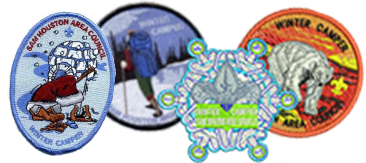


 Although not part of the winter camp program, it is possible for participants to earn the SHAC Winter Camper Patch while at winter camp if the weather cooperates! Registered Scouts and leaders can qualify for the winter camper patch when they have camped three days and two nights in temperatures of 42.5° or less. Official temperatures reached during camp will be provided in the unit checkout packet. Patches can be ordered online.
Although not part of the winter camp program, it is possible for participants to earn the SHAC Winter Camper Patch while at winter camp if the weather cooperates! Registered Scouts and leaders can qualify for the winter camper patch when they have camped three days and two nights in temperatures of 42.5° or less. Official temperatures reached during camp will be provided in the unit checkout packet. Patches can be ordered online.
Order Winter Camp Patches



